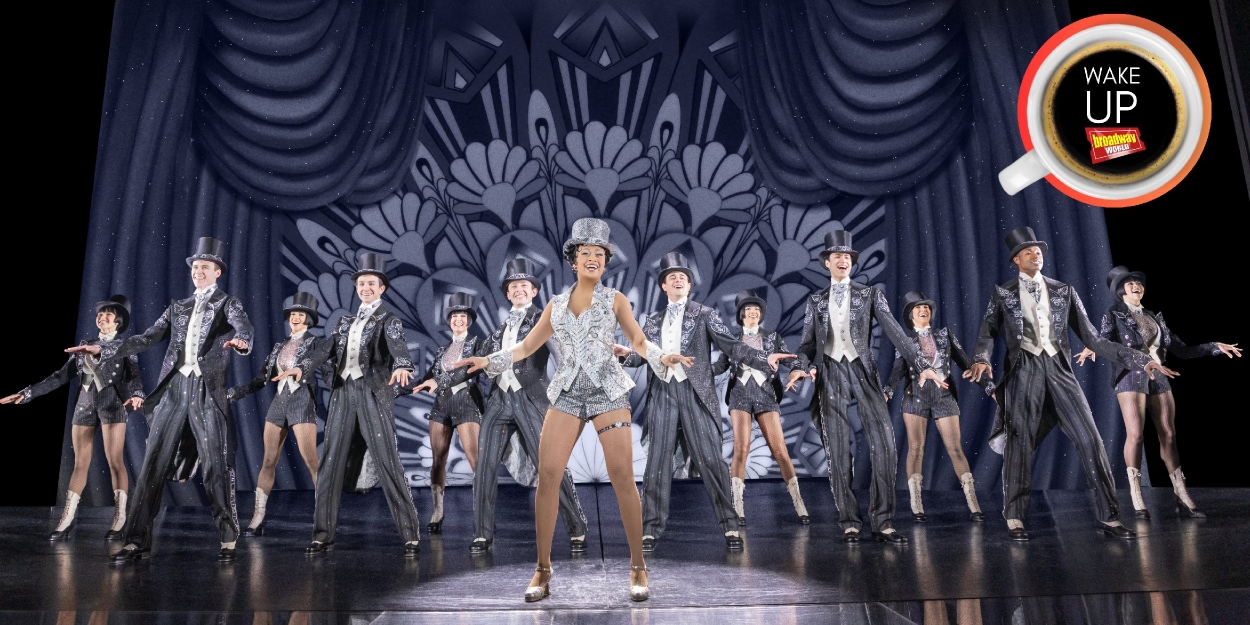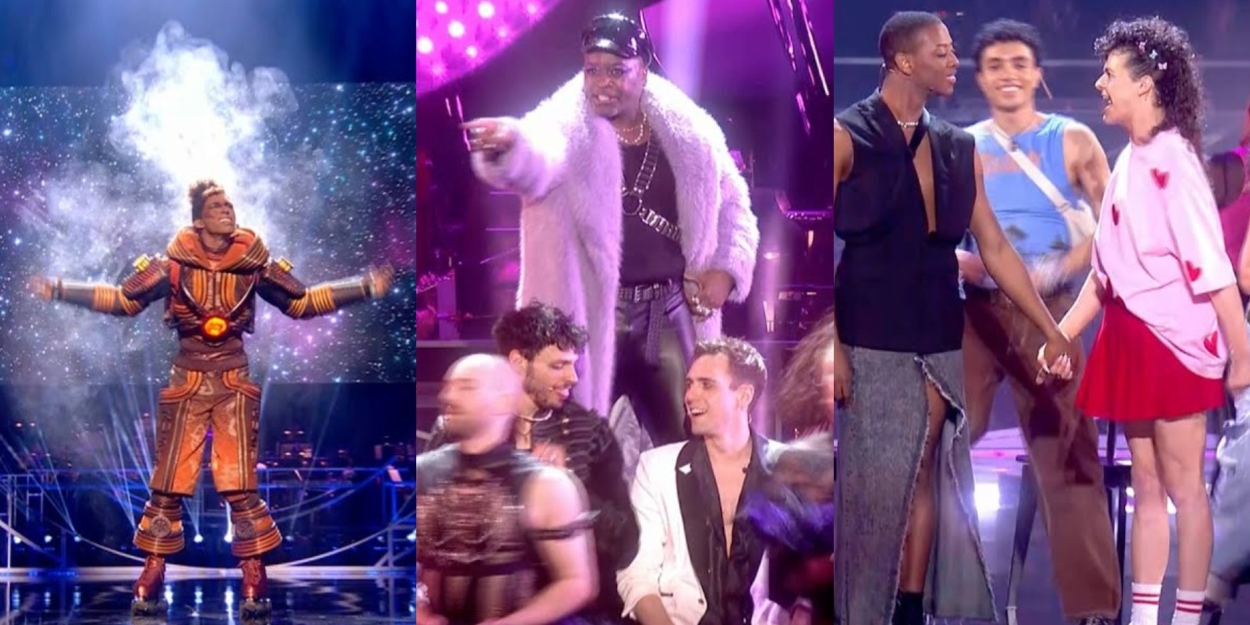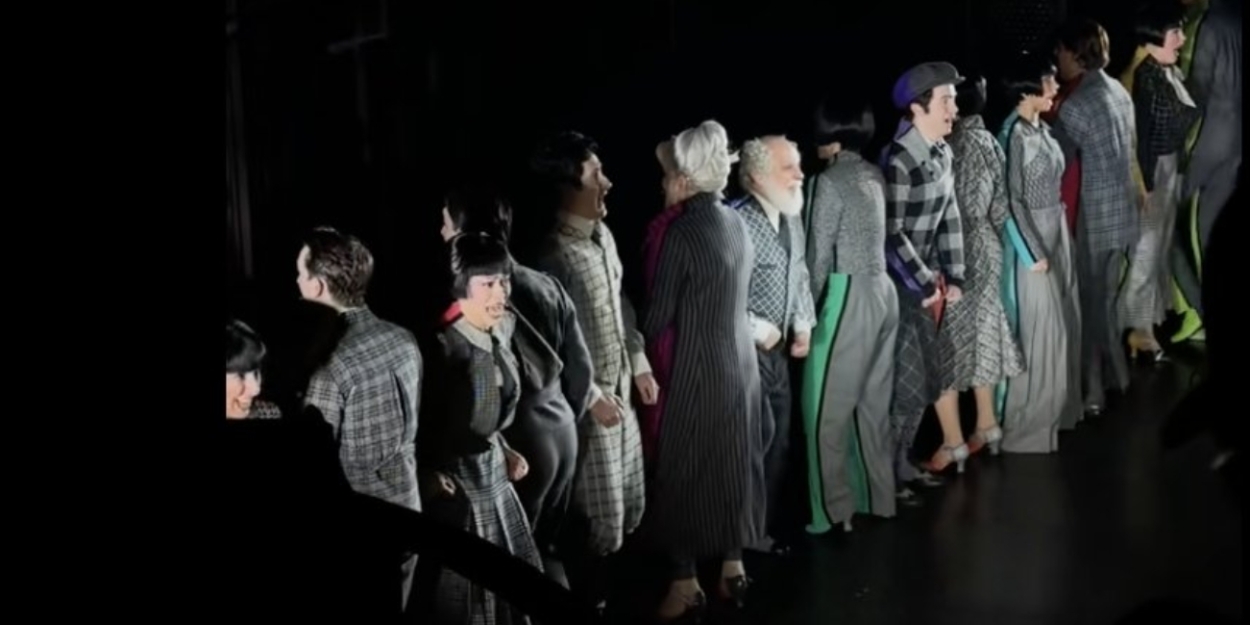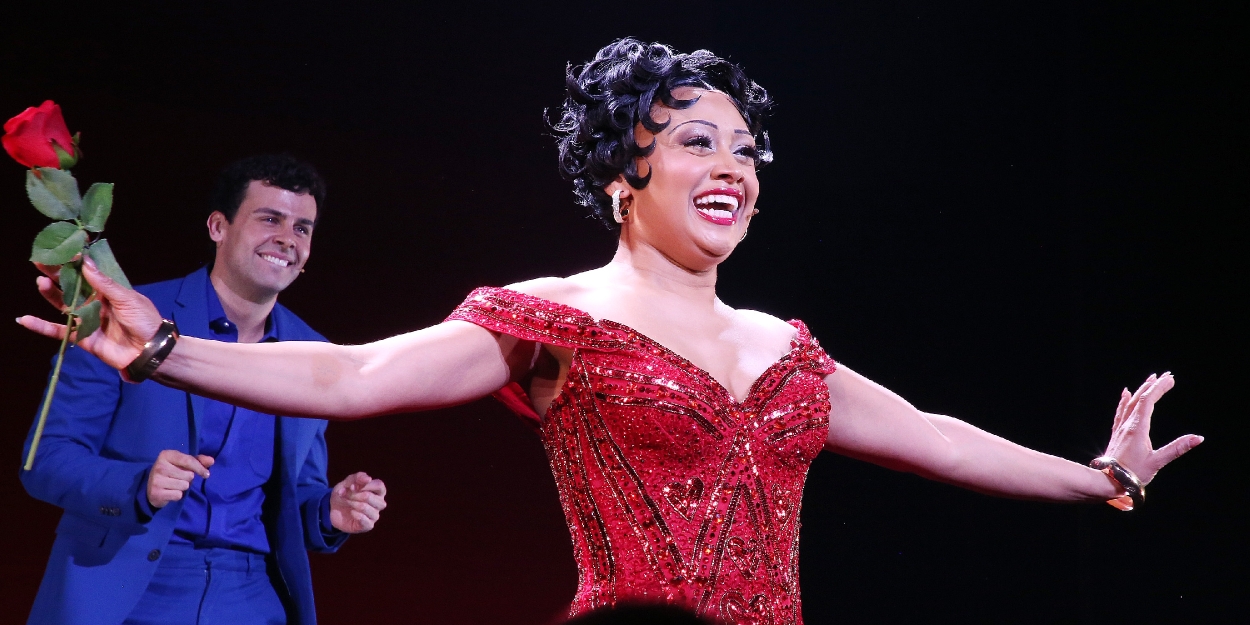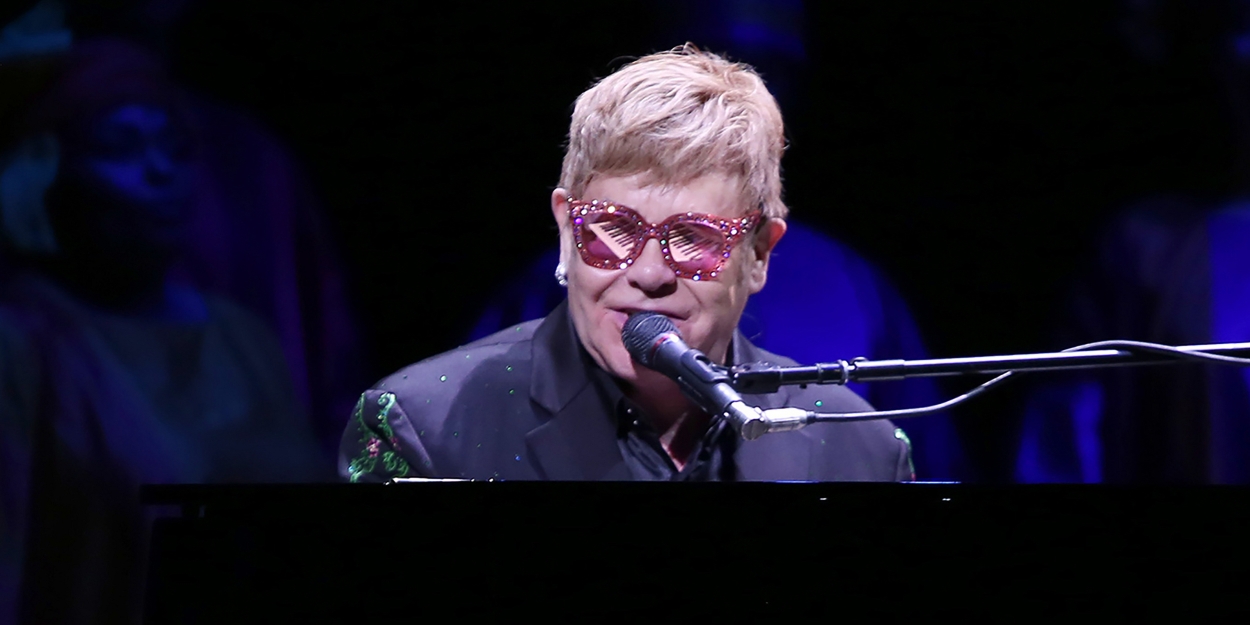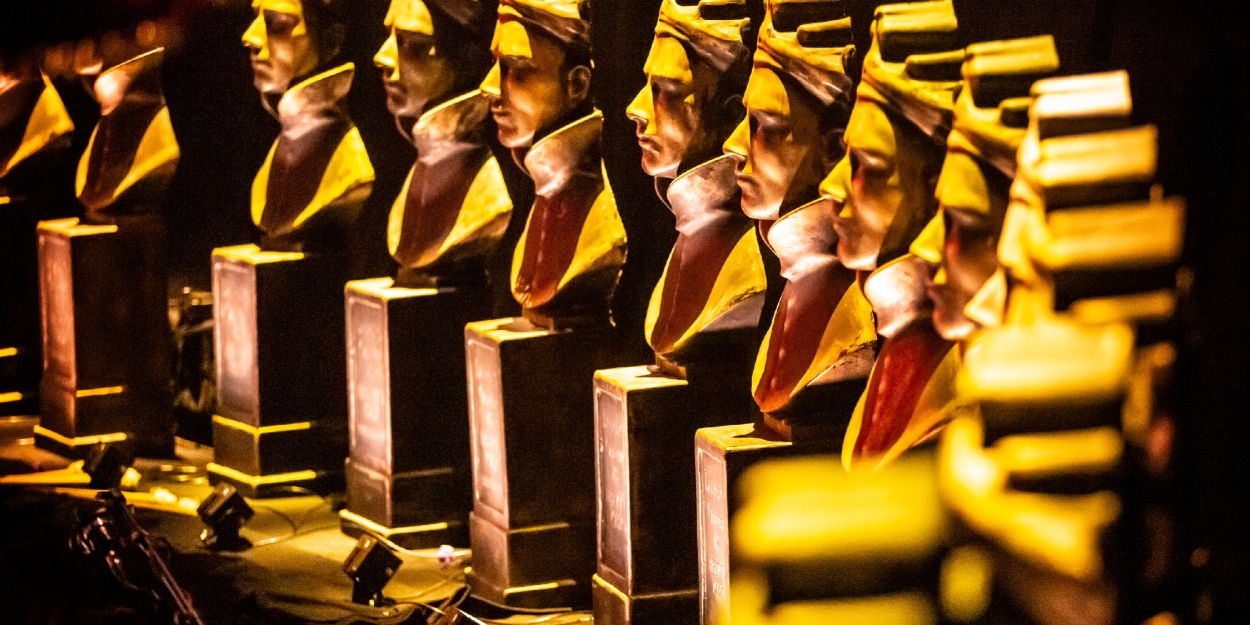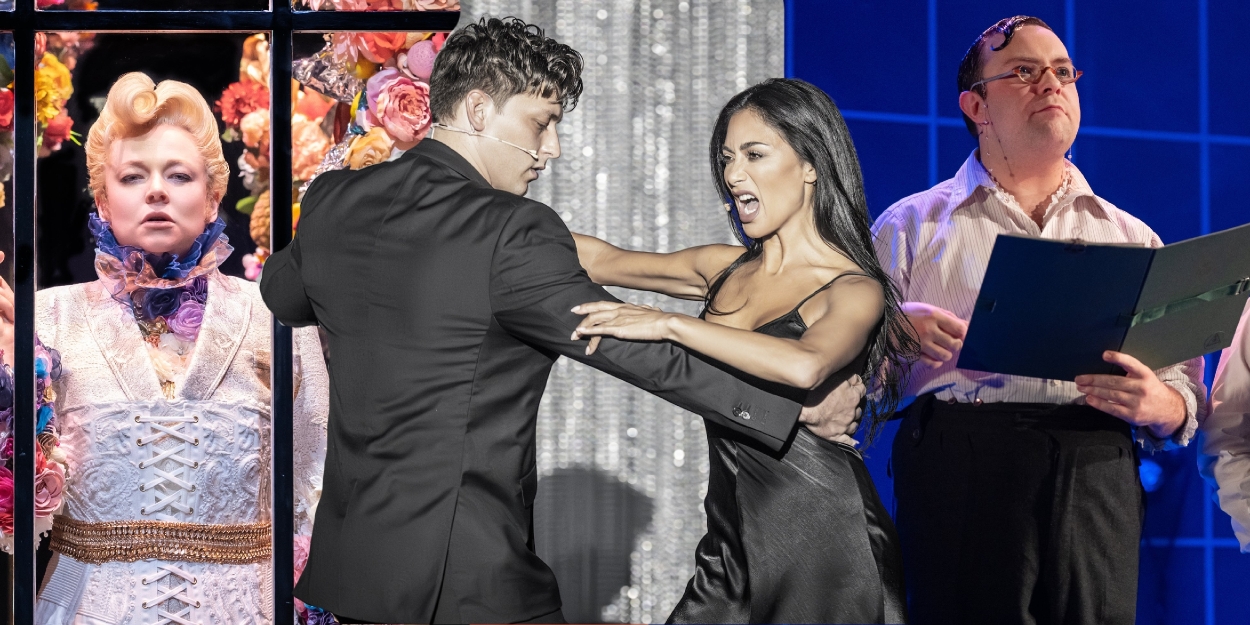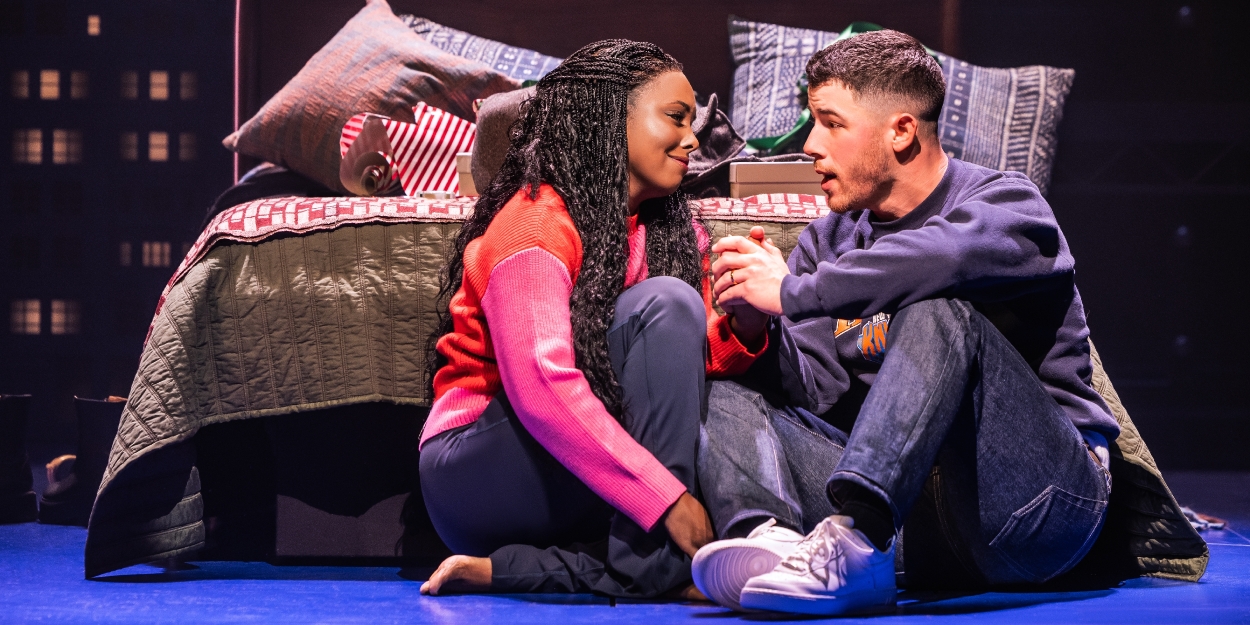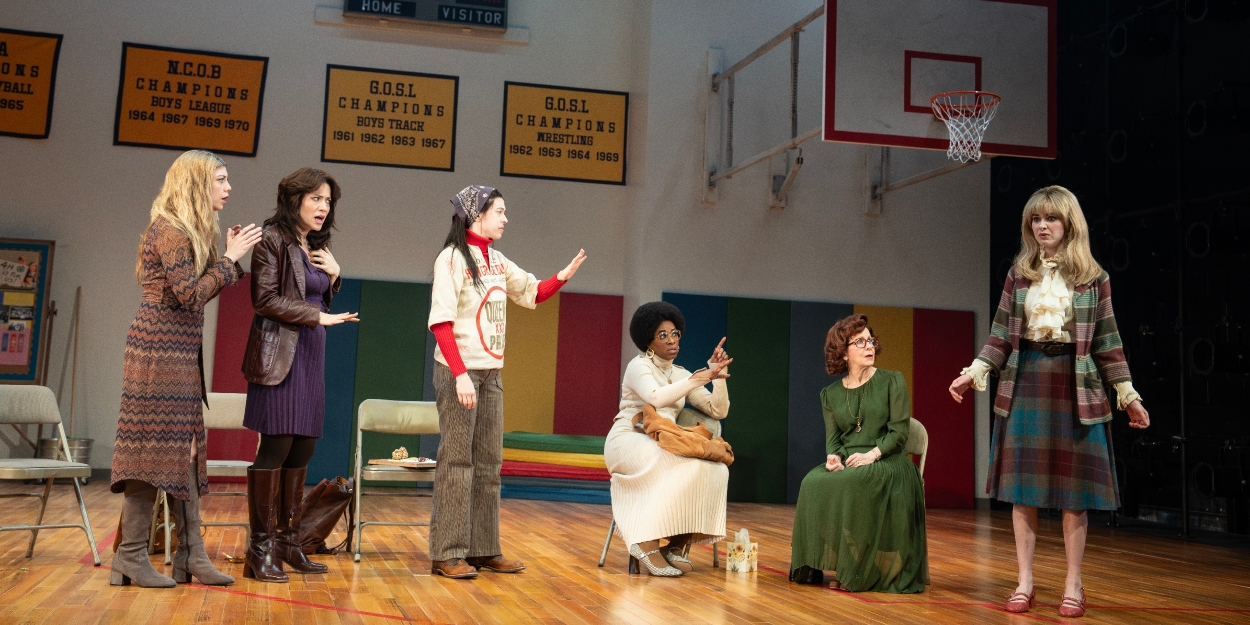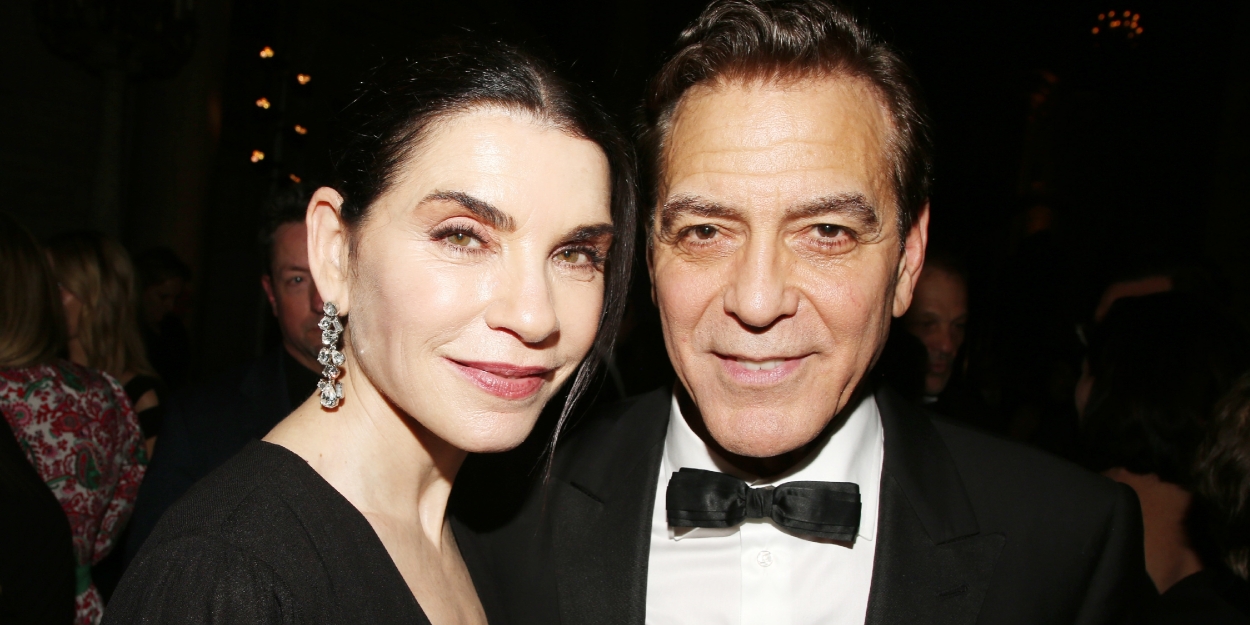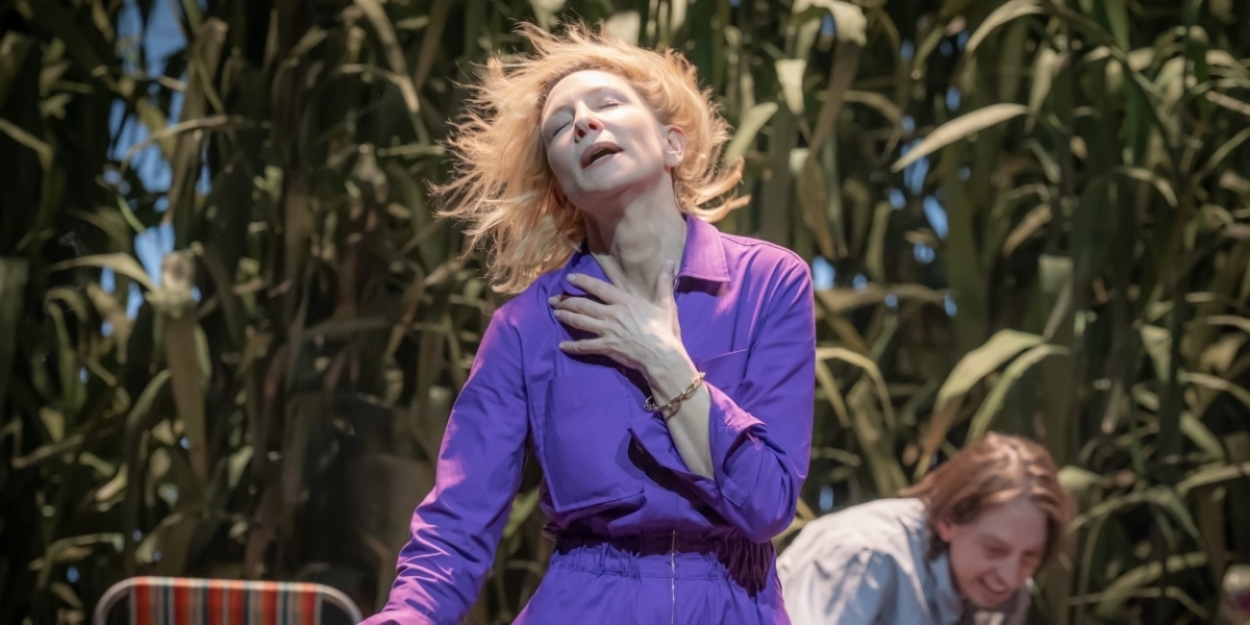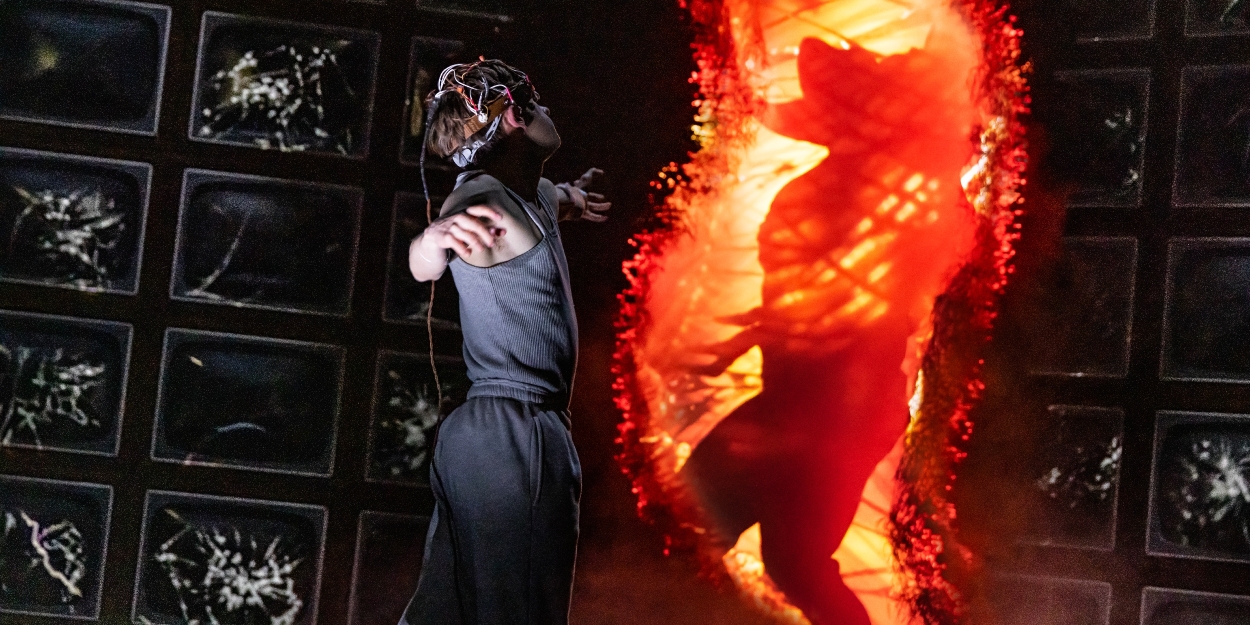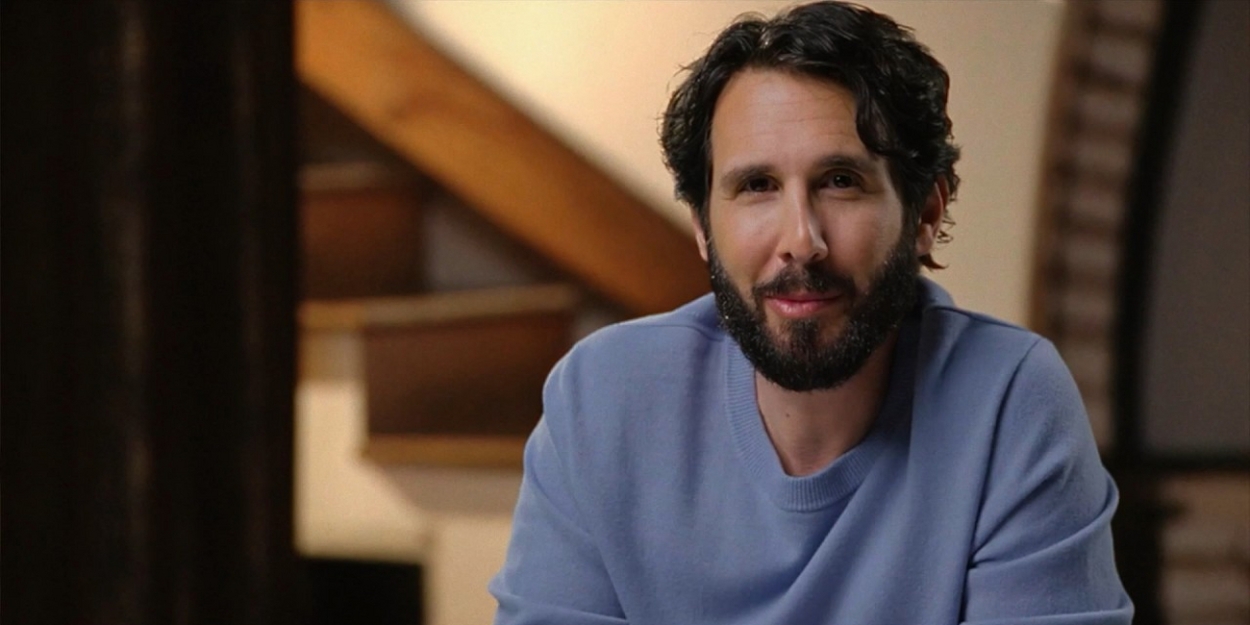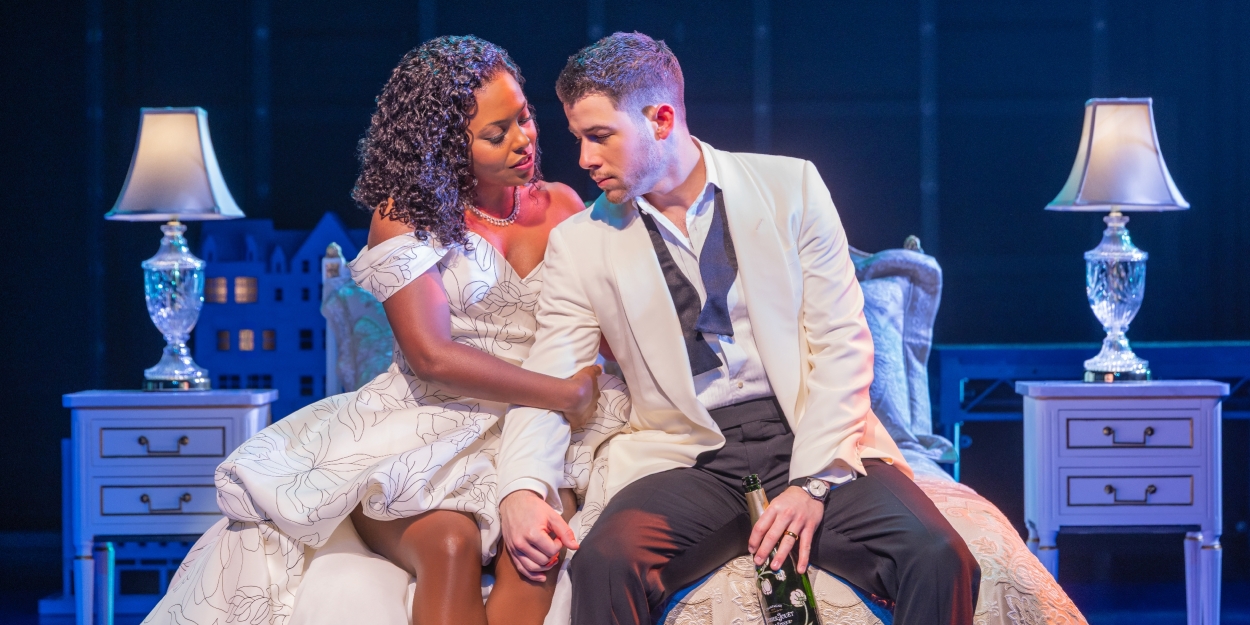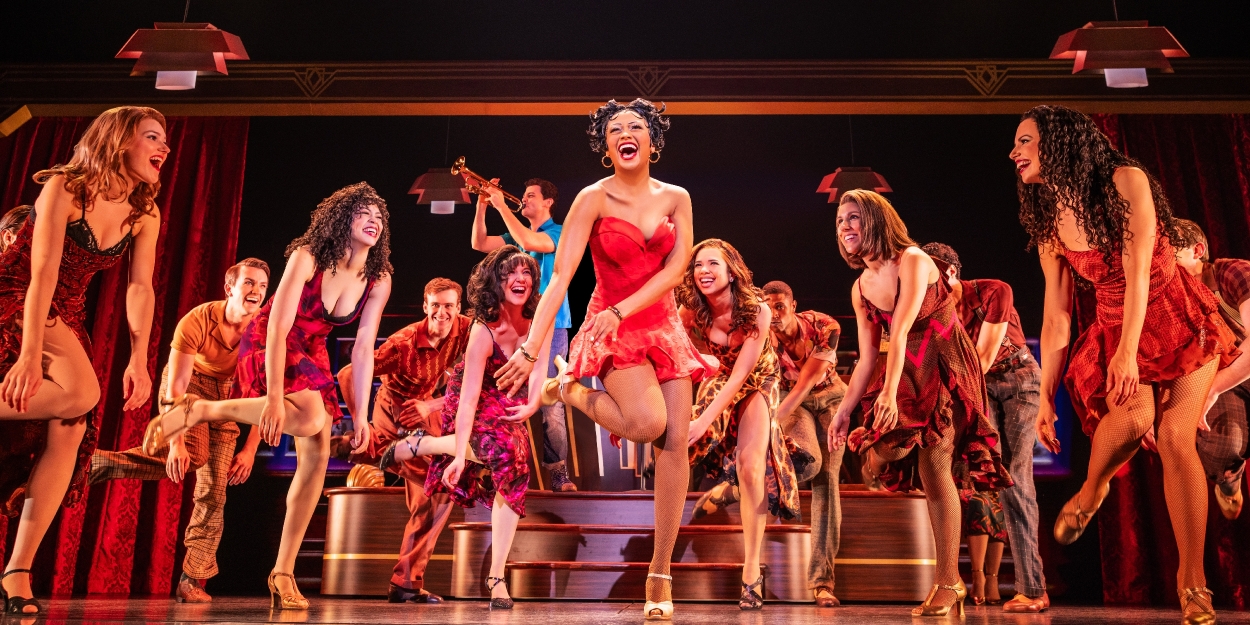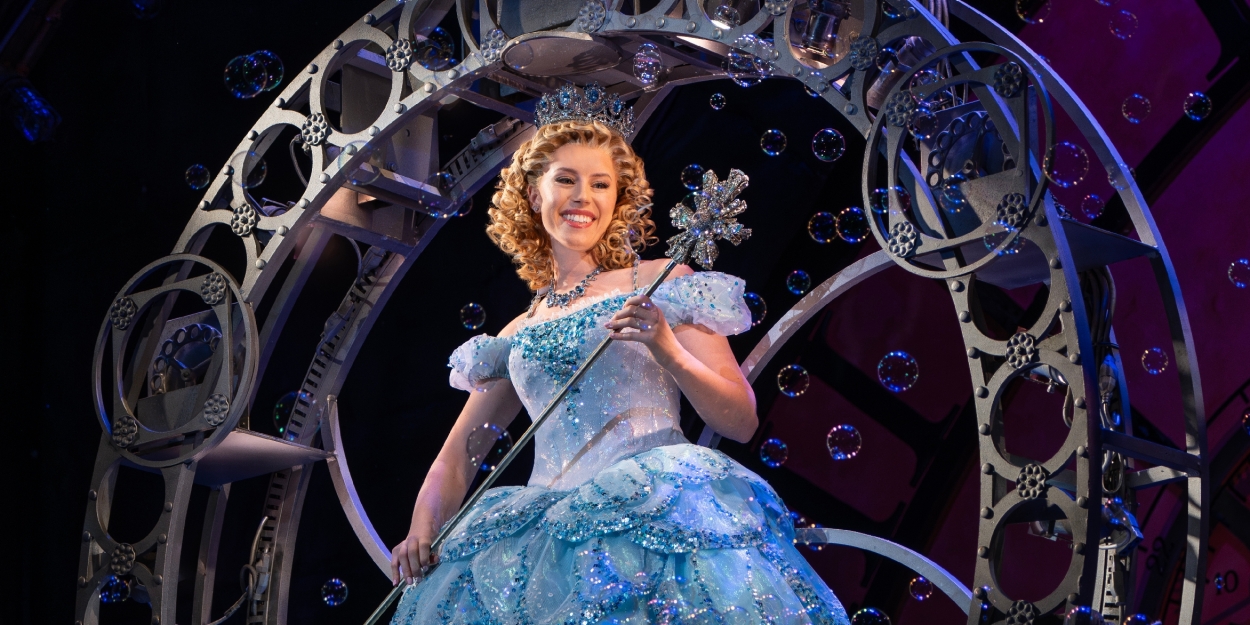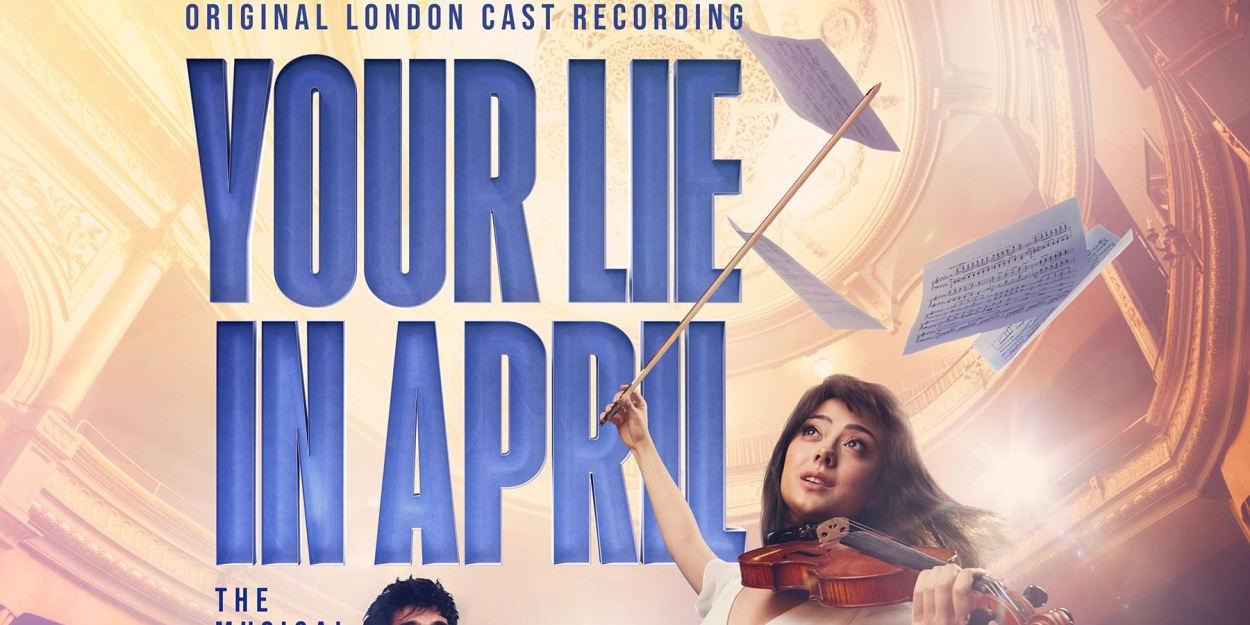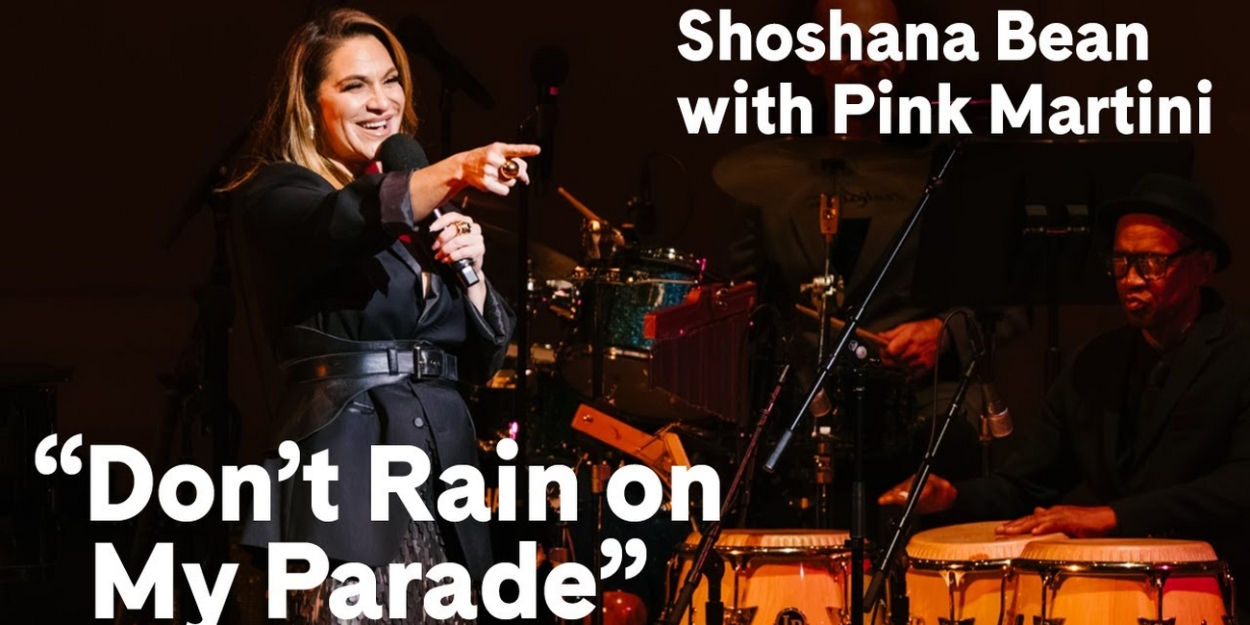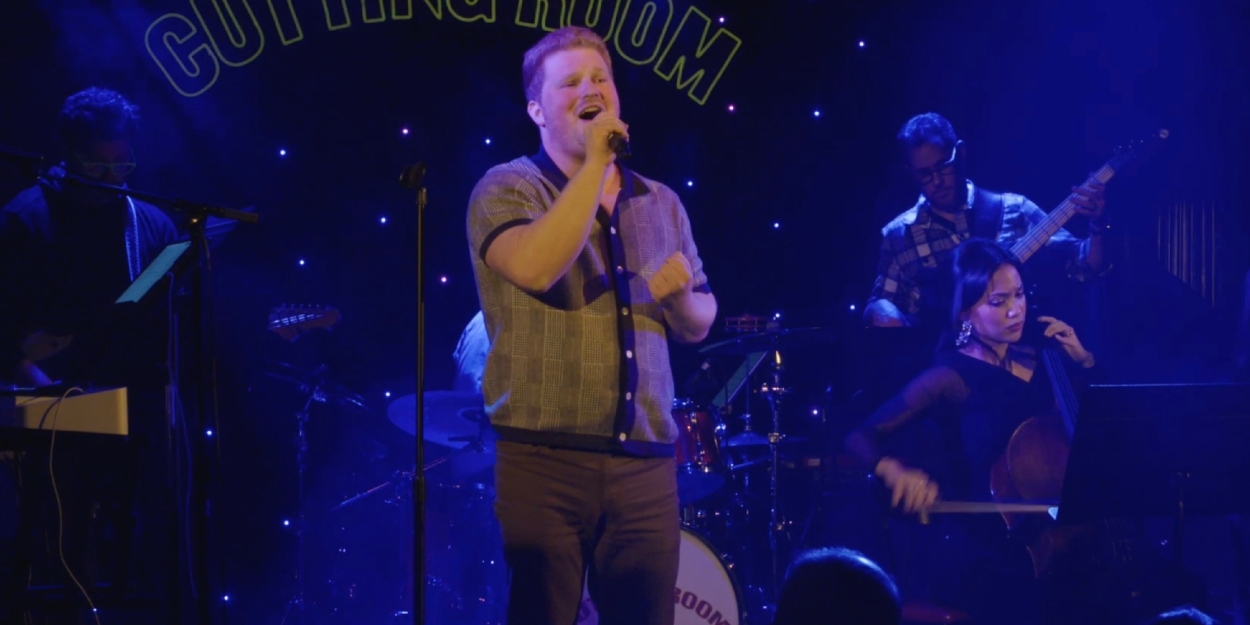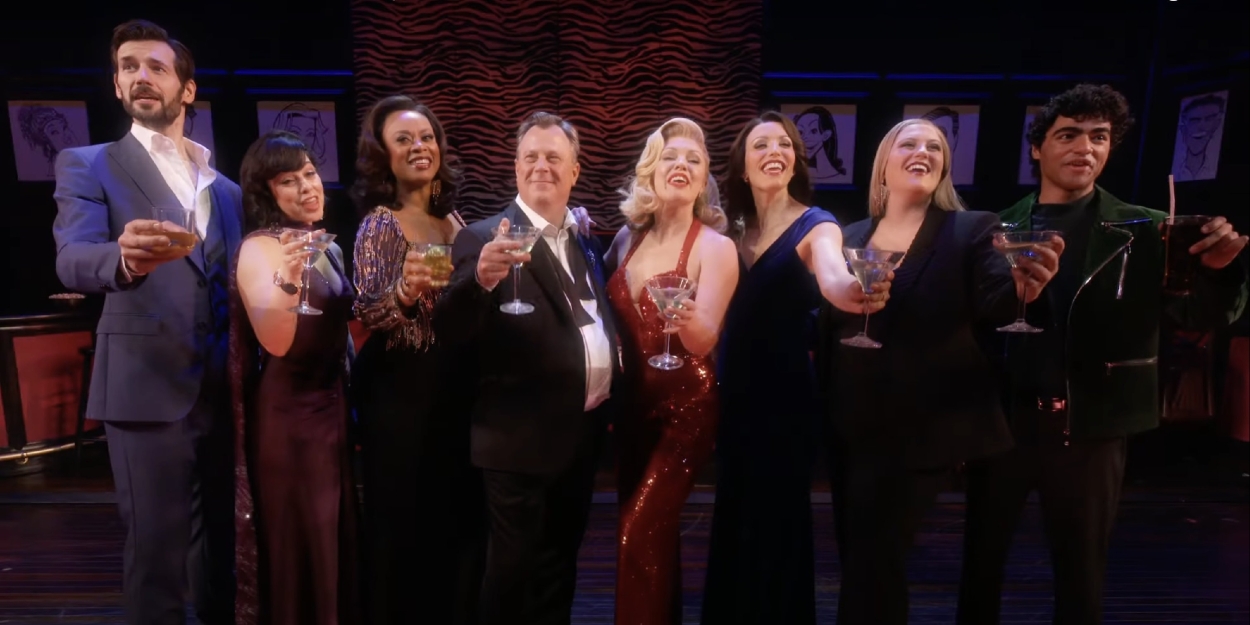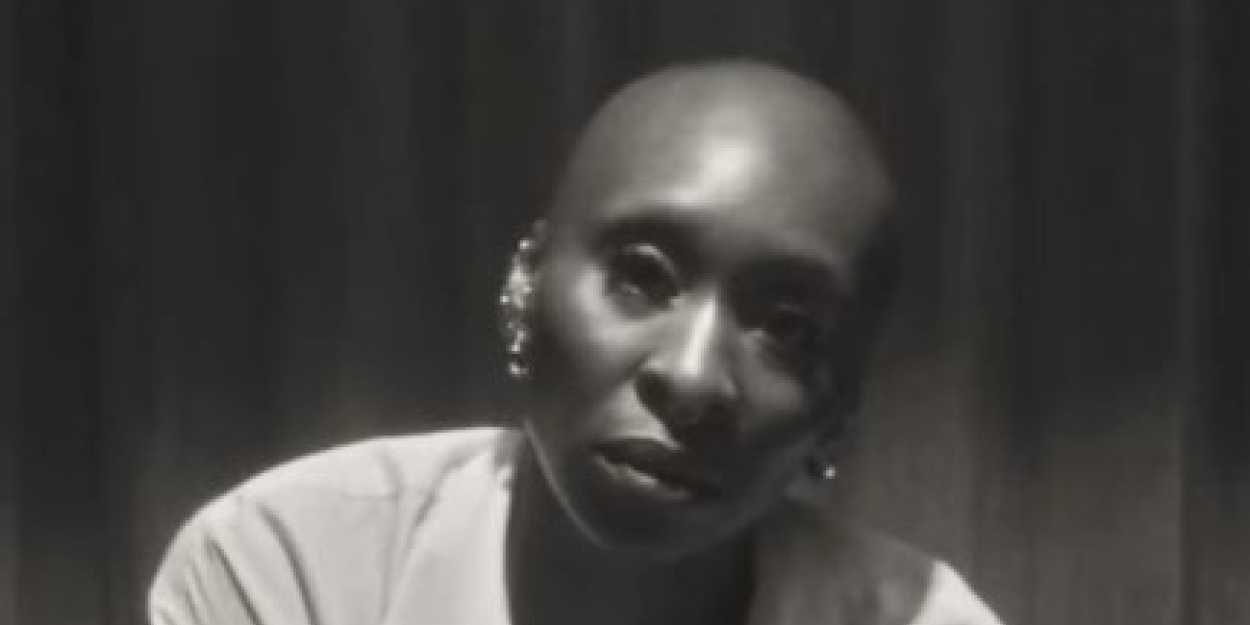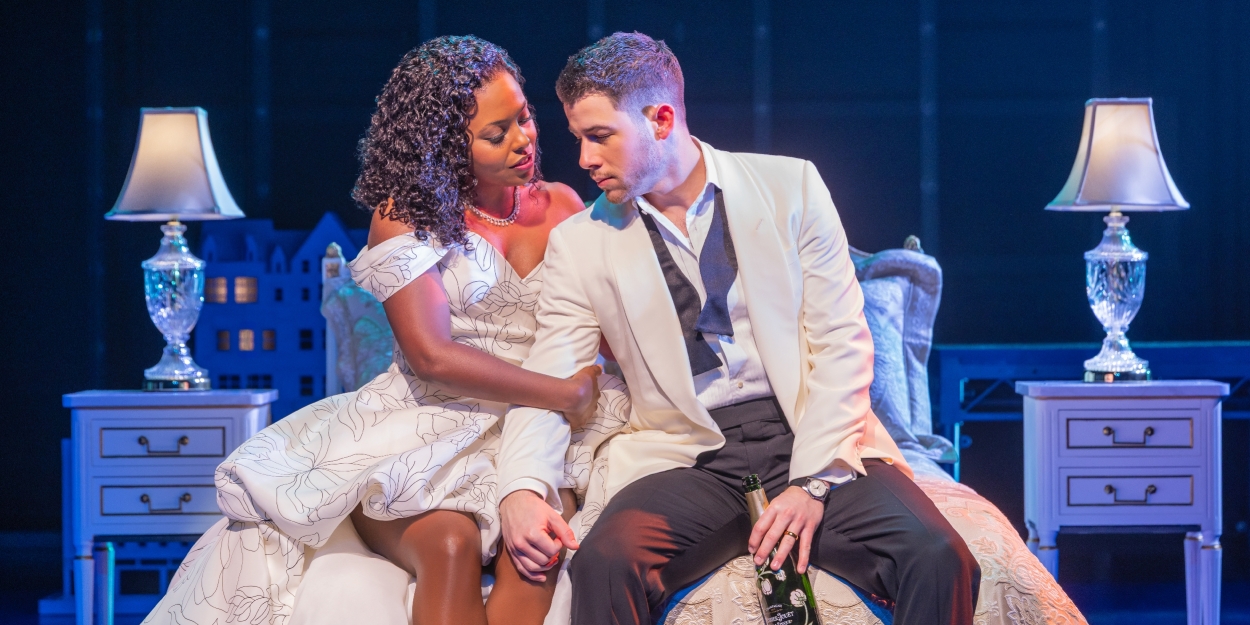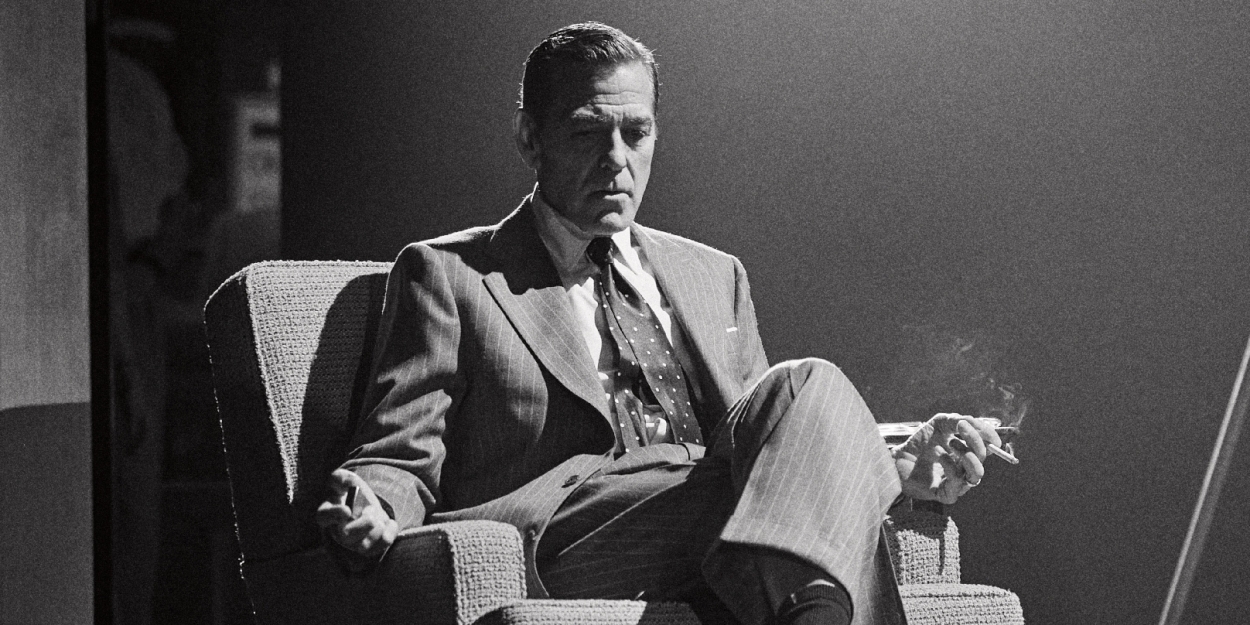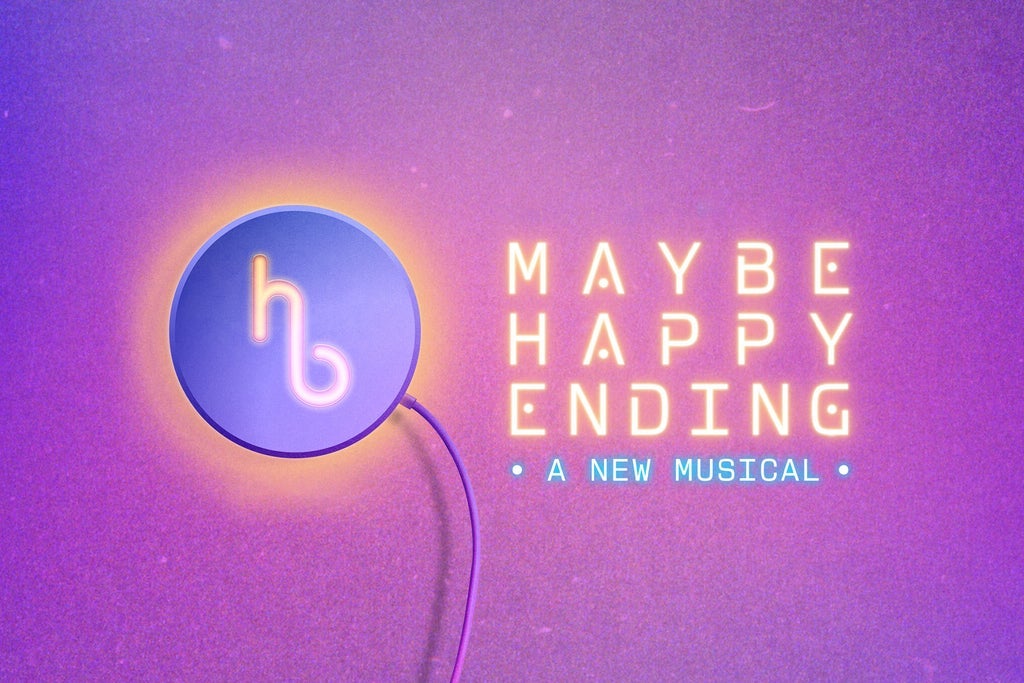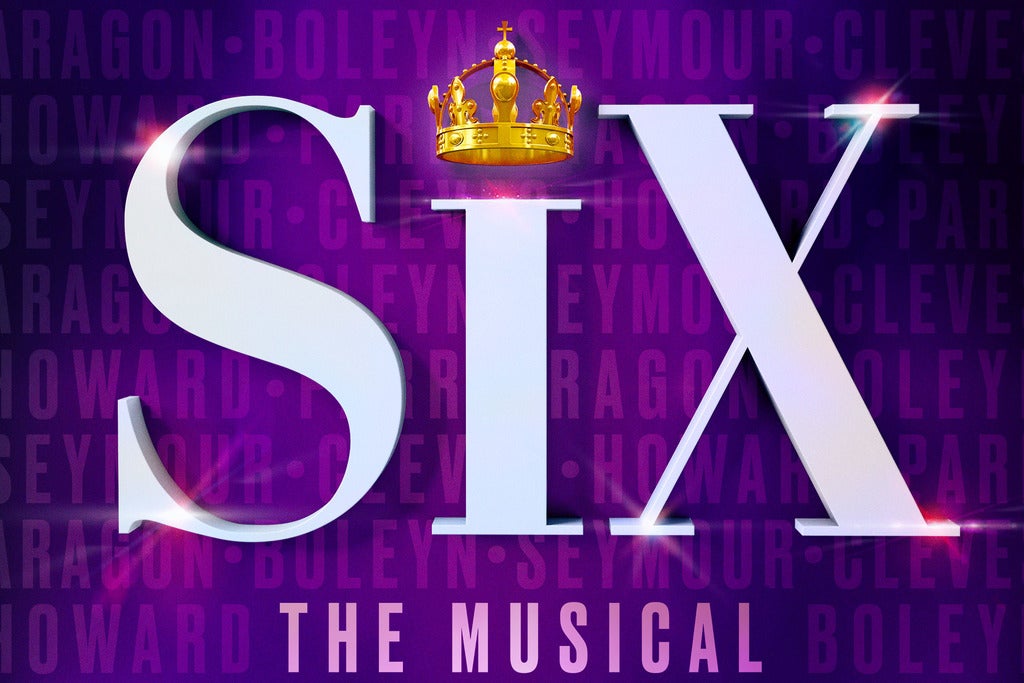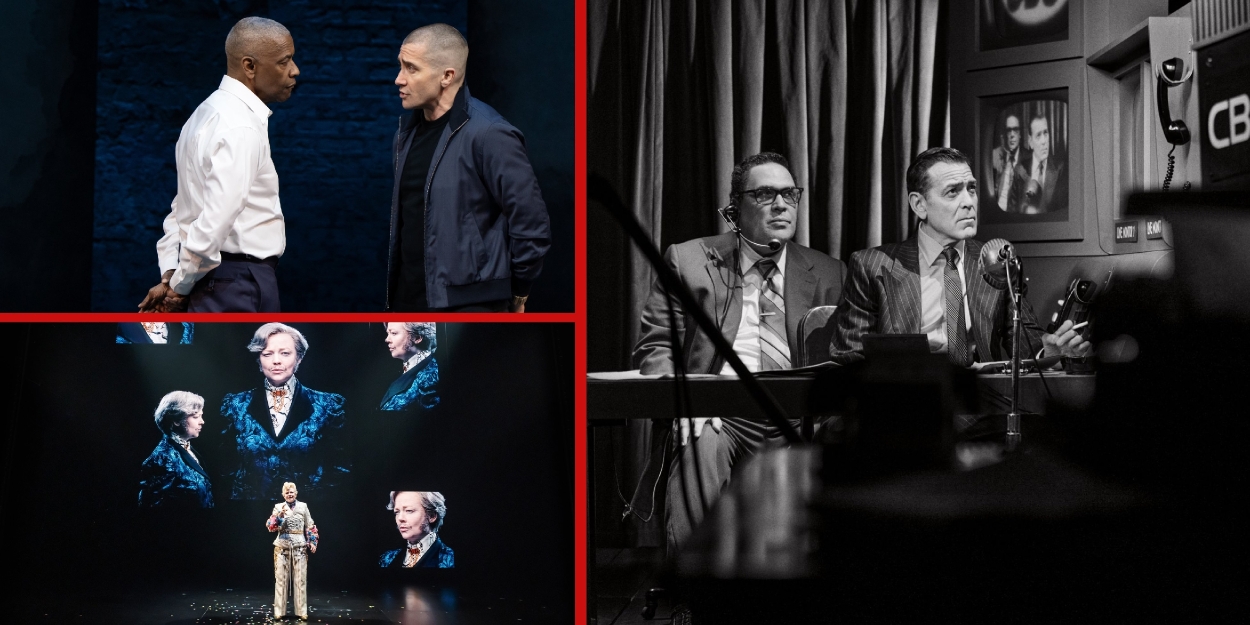- Final Round Voting Open for 2nd Annual Ultimate Best Musical Broadway Bracket
- Photos: Jonas & Warren Take Opening Night Bows in THE LAST FIVE YEARS
- Wake Up With BroadwayWorld April 7, 2025
Latest News
Trending Stories
Recommended for You
Review Roundup: THE LAST FIVE YEARS, Starring Nick Jonas and Adrienne Warren
This first Broadway production of Jason Robert Brown's musical is directed by Whitney White.
Review Roundup: GOOD NIGHT, AND GOOD LUCK Brings George Clooney To Broadway
Good Night and Good Luck is now running at Broadway's Winter Garden Theatre.
Olivier Awards 2025- All the Winners!
The Olivier Awards 2025 took place at the Royal Albert Hall at 6pm GMT.
A History of Nudity on Stage
Liberation concludes it off-Broadway run on April 6, 2025.
Ticket Central
Videos
Hot Photos this week
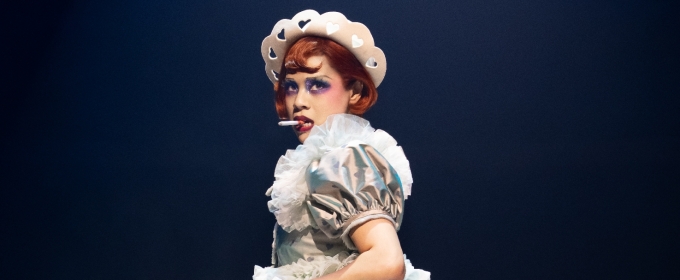 First Look At Orville Peck and Eva Noblezada In CABARET AT THE KIT KAT CLUB
Peck and Noblezada will star in the Tony Award-winning production for a limited 16-week engagement through Sunday, July 20.
First Look At Orville Peck and Eva Noblezada In CABARET AT THE KIT KAT CLUB
Peck and Noblezada will star in the Tony Award-winning production for a limited 16-week engagement through Sunday, July 20.
 Exclusive: Inside THE PICTURE OF DORIAN GRAY Opening Night Party
The production opened on March 27 at the Music Box Theatre.
Exclusive: Inside THE PICTURE OF DORIAN GRAY Opening Night Party
The production opened on March 27 at the Music Box Theatre.
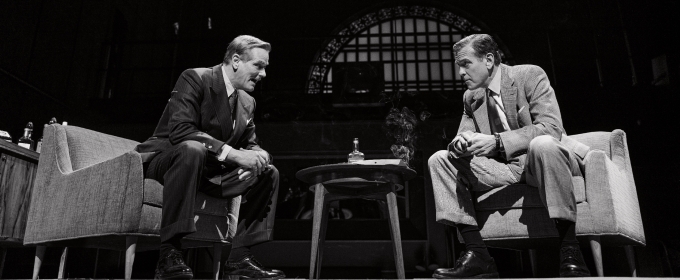 First Look at GOOD NIGHT, AND GOOD LUCK, Starring George Clooney
Good Night, and Good Luck will open at the Winter Garden Theatre on April 3.
First Look at GOOD NIGHT, AND GOOD LUCK, Starring George Clooney
Good Night, and Good Luck will open at the Winter Garden Theatre on April 3.
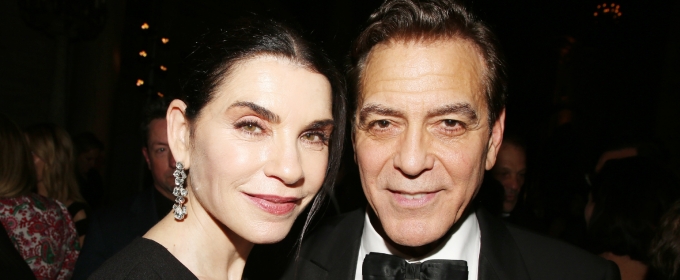 GOOD NIGHT, AND GOOD LUCK Opening Night Brings Out Jennifer Lopez, Rachel Zegler and More
Performances are now underway at the Winter Garden Theatre.
GOOD NIGHT, AND GOOD LUCK Opening Night Brings Out Jennifer Lopez, Rachel Zegler and More
Performances are now underway at the Winter Garden Theatre.
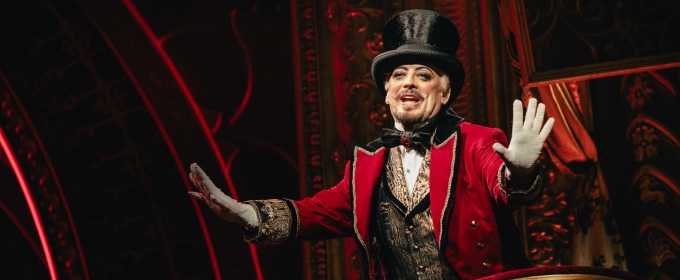 Boy George Returns to MOULIN ROUGE! on Broadway
Boy George will play a limited 10-week engagement through Sunday, May 25.
Boy George Returns to MOULIN ROUGE! on Broadway
Boy George will play a limited 10-week engagement through Sunday, May 25.
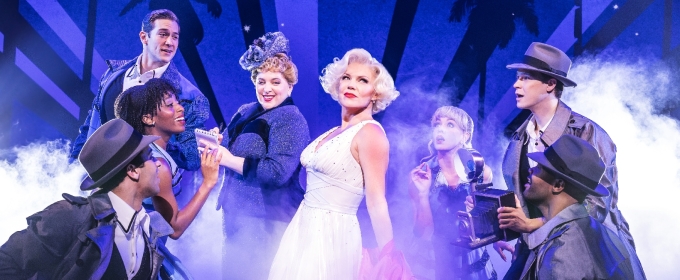 SMASH On Broadway - First Look
Now in previews at the Imperial Theatre, SMASH will officially open on Broadway on April 10.
SMASH On Broadway - First Look
Now in previews at the Imperial Theatre, SMASH will officially open on Broadway on April 10.
 Exclusive: Inside THE PICTURE OF DORIAN GRAY Opening Night Party
The production opened on March 27 at the Music Box Theatre.
Exclusive: Inside THE PICTURE OF DORIAN GRAY Opening Night Party
The production opened on March 27 at the Music Box Theatre.
 First Look at GOOD NIGHT, AND GOOD LUCK, Starring George Clooney
Good Night, and Good Luck will open at the Winter Garden Theatre on April 3.
First Look at GOOD NIGHT, AND GOOD LUCK, Starring George Clooney
Good Night, and Good Luck will open at the Winter Garden Theatre on April 3.
 GOOD NIGHT, AND GOOD LUCK Opening Night Brings Out Jennifer Lopez, Rachel Zegler and More
Performances are now underway at the Winter Garden Theatre.
GOOD NIGHT, AND GOOD LUCK Opening Night Brings Out Jennifer Lopez, Rachel Zegler and More
Performances are now underway at the Winter Garden Theatre.
 Boy George Returns to MOULIN ROUGE! on Broadway
Boy George will play a limited 10-week engagement through Sunday, May 25.
Boy George Returns to MOULIN ROUGE! on Broadway
Boy George will play a limited 10-week engagement through Sunday, May 25.
 SMASH On Broadway - First Look
Now in previews at the Imperial Theatre, SMASH will officially open on Broadway on April 10.
SMASH On Broadway - First Look
Now in previews at the Imperial Theatre, SMASH will officially open on Broadway on April 10.
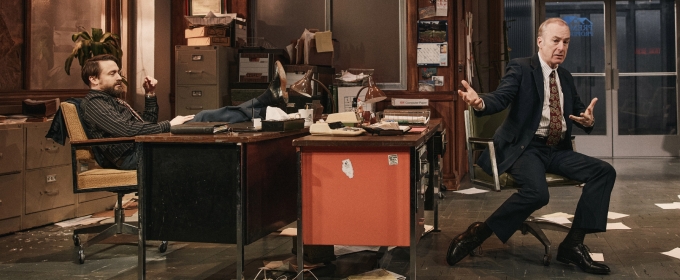 GLENGARRY GLEN ROSS On Broadway
The cast also includes Michael Mckean, Donald Webber, Jr., Howard W. Overshown, and John Pirruccello.
GLENGARRY GLEN ROSS On Broadway
The cast also includes Michael Mckean, Donald Webber, Jr., Howard W. Overshown, and John Pirruccello.
 First Look at GOOD NIGHT, AND GOOD LUCK, Starring George Clooney
Good Night, and Good Luck will open at the Winter Garden Theatre on April 3.
First Look at GOOD NIGHT, AND GOOD LUCK, Starring George Clooney
Good Night, and Good Luck will open at the Winter Garden Theatre on April 3.
 GOOD NIGHT, AND GOOD LUCK Opening Night Brings Out Jennifer Lopez, Rachel Zegler and More
Performances are now underway at the Winter Garden Theatre.
GOOD NIGHT, AND GOOD LUCK Opening Night Brings Out Jennifer Lopez, Rachel Zegler and More
Performances are now underway at the Winter Garden Theatre.
 Boy George Returns to MOULIN ROUGE! on Broadway
Boy George will play a limited 10-week engagement through Sunday, May 25.
Boy George Returns to MOULIN ROUGE! on Broadway
Boy George will play a limited 10-week engagement through Sunday, May 25.
 SMASH On Broadway - First Look
Now in previews at the Imperial Theatre, SMASH will officially open on Broadway on April 10.
SMASH On Broadway - First Look
Now in previews at the Imperial Theatre, SMASH will officially open on Broadway on April 10.
 GLENGARRY GLEN ROSS On Broadway
The cast also includes Michael Mckean, Donald Webber, Jr., Howard W. Overshown, and John Pirruccello.
GLENGARRY GLEN ROSS On Broadway
The cast also includes Michael Mckean, Donald Webber, Jr., Howard W. Overshown, and John Pirruccello.
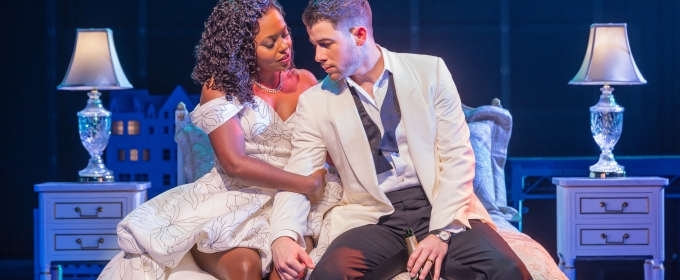 Nick Jonas & Adrienne Warren in THE LAST FIVE YEARS
The Last Five Years is running on Broadway at the Hudson Theatre.
Nick Jonas & Adrienne Warren in THE LAST FIVE YEARS
The Last Five Years is running on Broadway at the Hudson Theatre.
 GOOD NIGHT, AND GOOD LUCK Opening Night Brings Out Jennifer Lopez, Rachel Zegler and More
Performances are now underway at the Winter Garden Theatre.
GOOD NIGHT, AND GOOD LUCK Opening Night Brings Out Jennifer Lopez, Rachel Zegler and More
Performances are now underway at the Winter Garden Theatre.
 Boy George Returns to MOULIN ROUGE! on Broadway
Boy George will play a limited 10-week engagement through Sunday, May 25.
Boy George Returns to MOULIN ROUGE! on Broadway
Boy George will play a limited 10-week engagement through Sunday, May 25.
 SMASH On Broadway - First Look
Now in previews at the Imperial Theatre, SMASH will officially open on Broadway on April 10.
SMASH On Broadway - First Look
Now in previews at the Imperial Theatre, SMASH will officially open on Broadway on April 10.
 GLENGARRY GLEN ROSS On Broadway
The cast also includes Michael Mckean, Donald Webber, Jr., Howard W. Overshown, and John Pirruccello.
GLENGARRY GLEN ROSS On Broadway
The cast also includes Michael Mckean, Donald Webber, Jr., Howard W. Overshown, and John Pirruccello.
 Nick Jonas & Adrienne Warren in THE LAST FIVE YEARS
The Last Five Years is running on Broadway at the Hudson Theatre.
Nick Jonas & Adrienne Warren in THE LAST FIVE YEARS
The Last Five Years is running on Broadway at the Hudson Theatre.
 STEPHEN SONDHEIM'S OLD FRIENDS Hosts Benefit Performance
Stephen Sondheim’s Old Friends will officially open on Broadway on April 8, 2025.
STEPHEN SONDHEIM'S OLD FRIENDS Hosts Benefit Performance
Stephen Sondheim’s Old Friends will officially open on Broadway on April 8, 2025.
 Boy George Returns to MOULIN ROUGE! on Broadway
Boy George will play a limited 10-week engagement through Sunday, May 25.
Boy George Returns to MOULIN ROUGE! on Broadway
Boy George will play a limited 10-week engagement through Sunday, May 25.
 SMASH On Broadway - First Look
Now in previews at the Imperial Theatre, SMASH will officially open on Broadway on April 10.
SMASH On Broadway - First Look
Now in previews at the Imperial Theatre, SMASH will officially open on Broadway on April 10.
 GLENGARRY GLEN ROSS On Broadway
The cast also includes Michael Mckean, Donald Webber, Jr., Howard W. Overshown, and John Pirruccello.
GLENGARRY GLEN ROSS On Broadway
The cast also includes Michael Mckean, Donald Webber, Jr., Howard W. Overshown, and John Pirruccello.
 Nick Jonas & Adrienne Warren in THE LAST FIVE YEARS
The Last Five Years is running on Broadway at the Hudson Theatre.
Nick Jonas & Adrienne Warren in THE LAST FIVE YEARS
The Last Five Years is running on Broadway at the Hudson Theatre.
 STEPHEN SONDHEIM'S OLD FRIENDS Hosts Benefit Performance
Stephen Sondheim’s Old Friends will officially open on Broadway on April 8, 2025.
STEPHEN SONDHEIM'S OLD FRIENDS Hosts Benefit Performance
Stephen Sondheim’s Old Friends will officially open on Broadway on April 8, 2025.
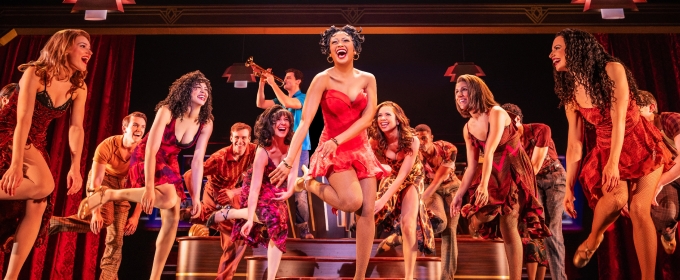 First Look at BOOP! THE MUSICAL on Broadway
Boop! stars Jasmine Amy Rogers, Faith Prince, Ainsley Melham, Erich Bergen and more.
First Look at BOOP! THE MUSICAL on Broadway
Boop! stars Jasmine Amy Rogers, Faith Prince, Ainsley Melham, Erich Bergen and more.
 SMASH On Broadway - First Look
Now in previews at the Imperial Theatre, SMASH will officially open on Broadway on April 10.
SMASH On Broadway - First Look
Now in previews at the Imperial Theatre, SMASH will officially open on Broadway on April 10.
 GLENGARRY GLEN ROSS On Broadway
The cast also includes Michael Mckean, Donald Webber, Jr., Howard W. Overshown, and John Pirruccello.
GLENGARRY GLEN ROSS On Broadway
The cast also includes Michael Mckean, Donald Webber, Jr., Howard W. Overshown, and John Pirruccello.
 Nick Jonas & Adrienne Warren in THE LAST FIVE YEARS
The Last Five Years is running on Broadway at the Hudson Theatre.
Nick Jonas & Adrienne Warren in THE LAST FIVE YEARS
The Last Five Years is running on Broadway at the Hudson Theatre.
 STEPHEN SONDHEIM'S OLD FRIENDS Hosts Benefit Performance
Stephen Sondheim’s Old Friends will officially open on Broadway on April 8, 2025.
STEPHEN SONDHEIM'S OLD FRIENDS Hosts Benefit Performance
Stephen Sondheim’s Old Friends will officially open on Broadway on April 8, 2025.
 First Look at BOOP! THE MUSICAL on Broadway
Boop! stars Jasmine Amy Rogers, Faith Prince, Ainsley Melham, Erich Bergen and more.
First Look at BOOP! THE MUSICAL on Broadway
Boop! stars Jasmine Amy Rogers, Faith Prince, Ainsley Melham, Erich Bergen and more.
 Criss, Holmes & More at GLENGARRY GLEN ROSS Opening
Performances are now underway at the Palace Theatre.
Criss, Holmes & More at GLENGARRY GLEN ROSS Opening
Performances are now underway at the Palace Theatre.
 GLENGARRY GLEN ROSS On Broadway
The cast also includes Michael Mckean, Donald Webber, Jr., Howard W. Overshown, and John Pirruccello.
GLENGARRY GLEN ROSS On Broadway
The cast also includes Michael Mckean, Donald Webber, Jr., Howard W. Overshown, and John Pirruccello.
 Nick Jonas & Adrienne Warren in THE LAST FIVE YEARS
The Last Five Years is running on Broadway at the Hudson Theatre.
Nick Jonas & Adrienne Warren in THE LAST FIVE YEARS
The Last Five Years is running on Broadway at the Hudson Theatre.
 STEPHEN SONDHEIM'S OLD FRIENDS Hosts Benefit Performance
Stephen Sondheim’s Old Friends will officially open on Broadway on April 8, 2025.
STEPHEN SONDHEIM'S OLD FRIENDS Hosts Benefit Performance
Stephen Sondheim’s Old Friends will officially open on Broadway on April 8, 2025.
 First Look at BOOP! THE MUSICAL on Broadway
Boop! stars Jasmine Amy Rogers, Faith Prince, Ainsley Melham, Erich Bergen and more.
First Look at BOOP! THE MUSICAL on Broadway
Boop! stars Jasmine Amy Rogers, Faith Prince, Ainsley Melham, Erich Bergen and more.
 Criss, Holmes & More at GLENGARRY GLEN ROSS Opening
Performances are now underway at the Palace Theatre.
Criss, Holmes & More at GLENGARRY GLEN ROSS Opening
Performances are now underway at the Palace Theatre.
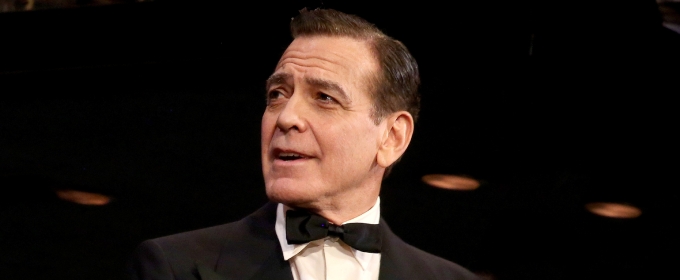 George Clooney and the Cast of GOOD NIGHT, AND GOOD LUCK Take Opening Night Bows
Performances are now underway at the Winter Garden Theatre.
George Clooney and the Cast of GOOD NIGHT, AND GOOD LUCK Take Opening Night Bows
Performances are now underway at the Winter Garden Theatre.
 Nick Jonas & Adrienne Warren in THE LAST FIVE YEARS
The Last Five Years is running on Broadway at the Hudson Theatre.
Nick Jonas & Adrienne Warren in THE LAST FIVE YEARS
The Last Five Years is running on Broadway at the Hudson Theatre.
 STEPHEN SONDHEIM'S OLD FRIENDS Hosts Benefit Performance
Stephen Sondheim’s Old Friends will officially open on Broadway on April 8, 2025.
STEPHEN SONDHEIM'S OLD FRIENDS Hosts Benefit Performance
Stephen Sondheim’s Old Friends will officially open on Broadway on April 8, 2025.
 First Look at BOOP! THE MUSICAL on Broadway
Boop! stars Jasmine Amy Rogers, Faith Prince, Ainsley Melham, Erich Bergen and more.
First Look at BOOP! THE MUSICAL on Broadway
Boop! stars Jasmine Amy Rogers, Faith Prince, Ainsley Melham, Erich Bergen and more.
 Criss, Holmes & More at GLENGARRY GLEN ROSS Opening
Performances are now underway at the Palace Theatre.
Criss, Holmes & More at GLENGARRY GLEN ROSS Opening
Performances are now underway at the Palace Theatre.
 George Clooney and the Cast of GOOD NIGHT, AND GOOD LUCK Take Opening Night Bows
Performances are now underway at the Winter Garden Theatre.
George Clooney and the Cast of GOOD NIGHT, AND GOOD LUCK Take Opening Night Bows
Performances are now underway at the Winter Garden Theatre.
 OTHELLO on Broadway Welcomes Joe and Jill Biden for A Backstage Visit
The former President and First Lady stopped in for a visit with stars Denzel Washington, Jake Gyllenhaal, and more.
OTHELLO on Broadway Welcomes Joe and Jill Biden for A Backstage Visit
The former President and First Lady stopped in for a visit with stars Denzel Washington, Jake Gyllenhaal, and more.
 STEPHEN SONDHEIM'S OLD FRIENDS Hosts Benefit Performance
Stephen Sondheim’s Old Friends will officially open on Broadway on April 8, 2025.
STEPHEN SONDHEIM'S OLD FRIENDS Hosts Benefit Performance
Stephen Sondheim’s Old Friends will officially open on Broadway on April 8, 2025.
 First Look at BOOP! THE MUSICAL on Broadway
Boop! stars Jasmine Amy Rogers, Faith Prince, Ainsley Melham, Erich Bergen and more.
First Look at BOOP! THE MUSICAL on Broadway
Boop! stars Jasmine Amy Rogers, Faith Prince, Ainsley Melham, Erich Bergen and more.
 Criss, Holmes & More at GLENGARRY GLEN ROSS Opening
Performances are now underway at the Palace Theatre.
Criss, Holmes & More at GLENGARRY GLEN ROSS Opening
Performances are now underway at the Palace Theatre.
 George Clooney and the Cast of GOOD NIGHT, AND GOOD LUCK Take Opening Night Bows
Performances are now underway at the Winter Garden Theatre.
George Clooney and the Cast of GOOD NIGHT, AND GOOD LUCK Take Opening Night Bows
Performances are now underway at the Winter Garden Theatre.
 OTHELLO on Broadway Welcomes Joe and Jill Biden for A Backstage Visit
The former President and First Lady stopped in for a visit with stars Denzel Washington, Jake Gyllenhaal, and more.
OTHELLO on Broadway Welcomes Joe and Jill Biden for A Backstage Visit
The former President and First Lady stopped in for a visit with stars Denzel Washington, Jake Gyllenhaal, and more.
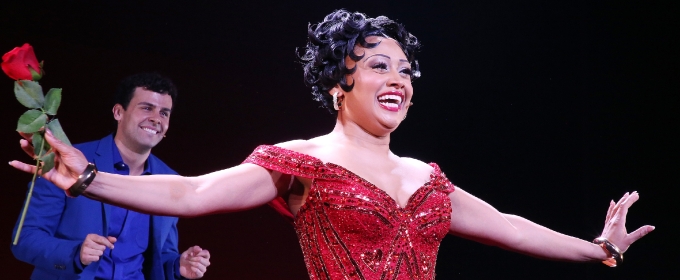 BOOP! THE MUSICAL's Opening Night Curtain Call
Boop! The Musical is now running on Broadway at the Broadhurst Theatre.
BOOP! THE MUSICAL's Opening Night Curtain Call
Boop! The Musical is now running on Broadway at the Broadhurst Theatre.
 First Look at BOOP! THE MUSICAL on Broadway
Boop! stars Jasmine Amy Rogers, Faith Prince, Ainsley Melham, Erich Bergen and more.
First Look at BOOP! THE MUSICAL on Broadway
Boop! stars Jasmine Amy Rogers, Faith Prince, Ainsley Melham, Erich Bergen and more.
 Criss, Holmes & More at GLENGARRY GLEN ROSS Opening
Performances are now underway at the Palace Theatre.
Criss, Holmes & More at GLENGARRY GLEN ROSS Opening
Performances are now underway at the Palace Theatre.
 George Clooney and the Cast of GOOD NIGHT, AND GOOD LUCK Take Opening Night Bows
Performances are now underway at the Winter Garden Theatre.
George Clooney and the Cast of GOOD NIGHT, AND GOOD LUCK Take Opening Night Bows
Performances are now underway at the Winter Garden Theatre.
 OTHELLO on Broadway Welcomes Joe and Jill Biden for A Backstage Visit
The former President and First Lady stopped in for a visit with stars Denzel Washington, Jake Gyllenhaal, and more.
OTHELLO on Broadway Welcomes Joe and Jill Biden for A Backstage Visit
The former President and First Lady stopped in for a visit with stars Denzel Washington, Jake Gyllenhaal, and more.
 BOOP! THE MUSICAL's Opening Night Curtain Call
Boop! The Musical is now running on Broadway at the Broadhurst Theatre.
BOOP! THE MUSICAL's Opening Night Curtain Call
Boop! The Musical is now running on Broadway at the Broadhurst Theatre.
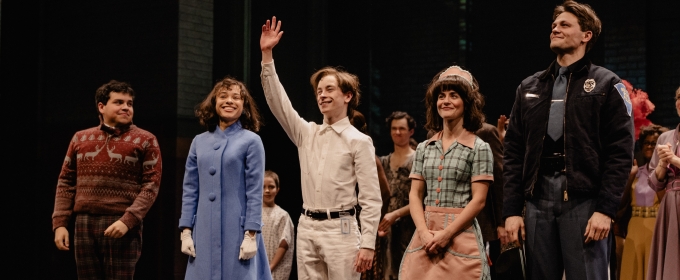 STRANGER THINGS: THE FIRST SHADOW Takes First Broadway Bows
Stranger Things: The First Shadow officially opens on Tuesday, April 22.
STRANGER THINGS: THE FIRST SHADOW Takes First Broadway Bows
Stranger Things: The First Shadow officially opens on Tuesday, April 22.
 Criss, Holmes & More at GLENGARRY GLEN ROSS Opening
Performances are now underway at the Palace Theatre.
Criss, Holmes & More at GLENGARRY GLEN ROSS Opening
Performances are now underway at the Palace Theatre.
 George Clooney and the Cast of GOOD NIGHT, AND GOOD LUCK Take Opening Night Bows
Performances are now underway at the Winter Garden Theatre.
George Clooney and the Cast of GOOD NIGHT, AND GOOD LUCK Take Opening Night Bows
Performances are now underway at the Winter Garden Theatre.
 OTHELLO on Broadway Welcomes Joe and Jill Biden for A Backstage Visit
The former President and First Lady stopped in for a visit with stars Denzel Washington, Jake Gyllenhaal, and more.
OTHELLO on Broadway Welcomes Joe and Jill Biden for A Backstage Visit
The former President and First Lady stopped in for a visit with stars Denzel Washington, Jake Gyllenhaal, and more.
 BOOP! THE MUSICAL's Opening Night Curtain Call
Boop! The Musical is now running on Broadway at the Broadhurst Theatre.
BOOP! THE MUSICAL's Opening Night Curtain Call
Boop! The Musical is now running on Broadway at the Broadhurst Theatre.
 STRANGER THINGS: THE FIRST SHADOW Takes First Broadway Bows
Stranger Things: The First Shadow officially opens on Tuesday, April 22.
STRANGER THINGS: THE FIRST SHADOW Takes First Broadway Bows
Stranger Things: The First Shadow officially opens on Tuesday, April 22.
 THE OUTSIDERS on Broadway New Images
The current cast features Daryl Tofa as Two-Bit Mathews, Brody Grant as Ponyboy Curtis and more.
THE OUTSIDERS on Broadway New Images
The current cast features Daryl Tofa as Two-Bit Mathews, Brody Grant as Ponyboy Curtis and more.
 George Clooney and the Cast of GOOD NIGHT, AND GOOD LUCK Take Opening Night Bows
Performances are now underway at the Winter Garden Theatre.
George Clooney and the Cast of GOOD NIGHT, AND GOOD LUCK Take Opening Night Bows
Performances are now underway at the Winter Garden Theatre.
 OTHELLO on Broadway Welcomes Joe and Jill Biden for A Backstage Visit
The former President and First Lady stopped in for a visit with stars Denzel Washington, Jake Gyllenhaal, and more.
OTHELLO on Broadway Welcomes Joe and Jill Biden for A Backstage Visit
The former President and First Lady stopped in for a visit with stars Denzel Washington, Jake Gyllenhaal, and more.
 BOOP! THE MUSICAL's Opening Night Curtain Call
Boop! The Musical is now running on Broadway at the Broadhurst Theatre.
BOOP! THE MUSICAL's Opening Night Curtain Call
Boop! The Musical is now running on Broadway at the Broadhurst Theatre.
 STRANGER THINGS: THE FIRST SHADOW Takes First Broadway Bows
Stranger Things: The First Shadow officially opens on Tuesday, April 22.
STRANGER THINGS: THE FIRST SHADOW Takes First Broadway Bows
Stranger Things: The First Shadow officially opens on Tuesday, April 22.
 THE OUTSIDERS on Broadway New Images
The current cast features Daryl Tofa as Two-Bit Mathews, Brody Grant as Ponyboy Curtis and more.
THE OUTSIDERS on Broadway New Images
The current cast features Daryl Tofa as Two-Bit Mathews, Brody Grant as Ponyboy Curtis and more.
 OTHELLO Brings Out Pres. Joe Biden, Jennifer Lopez and More on Opening Night!
Directed by Tony Award winner Kenny Leon, Othello is playing a strictly limited engagement through Sunday, June 8 only.
OTHELLO Brings Out Pres. Joe Biden, Jennifer Lopez and More on Opening Night!
Directed by Tony Award winner Kenny Leon, Othello is playing a strictly limited engagement through Sunday, June 8 only.
 OTHELLO on Broadway Welcomes Joe and Jill Biden for A Backstage Visit
The former President and First Lady stopped in for a visit with stars Denzel Washington, Jake Gyllenhaal, and more.
OTHELLO on Broadway Welcomes Joe and Jill Biden for A Backstage Visit
The former President and First Lady stopped in for a visit with stars Denzel Washington, Jake Gyllenhaal, and more.
 BOOP! THE MUSICAL's Opening Night Curtain Call
Boop! The Musical is now running on Broadway at the Broadhurst Theatre.
BOOP! THE MUSICAL's Opening Night Curtain Call
Boop! The Musical is now running on Broadway at the Broadhurst Theatre.
 STRANGER THINGS: THE FIRST SHADOW Takes First Broadway Bows
Stranger Things: The First Shadow officially opens on Tuesday, April 22.
STRANGER THINGS: THE FIRST SHADOW Takes First Broadway Bows
Stranger Things: The First Shadow officially opens on Tuesday, April 22.
 THE OUTSIDERS on Broadway New Images
The current cast features Daryl Tofa as Two-Bit Mathews, Brody Grant as Ponyboy Curtis and more.
THE OUTSIDERS on Broadway New Images
The current cast features Daryl Tofa as Two-Bit Mathews, Brody Grant as Ponyboy Curtis and more.
 OTHELLO Brings Out Pres. Joe Biden, Jennifer Lopez and More on Opening Night!
Directed by Tony Award winner Kenny Leon, Othello is playing a strictly limited engagement through Sunday, June 8 only.
OTHELLO Brings Out Pres. Joe Biden, Jennifer Lopez and More on Opening Night!
Directed by Tony Award winner Kenny Leon, Othello is playing a strictly limited engagement through Sunday, June 8 only.
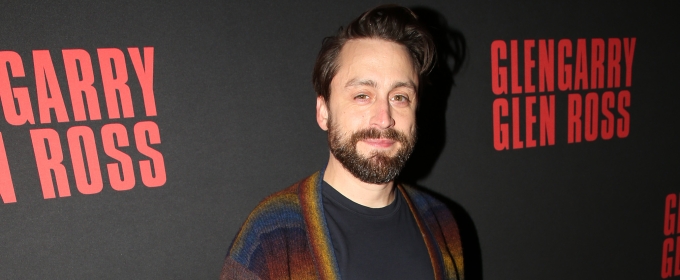 GLENGARRY GLEN ROSS Cast on the Opening Night Red Carpet
The revival officially opened on March 31 at the Palace Theatre.
GLENGARRY GLEN ROSS Cast on the Opening Night Red Carpet
The revival officially opened on March 31 at the Palace Theatre.
 BOOP! THE MUSICAL's Opening Night Curtain Call
Boop! The Musical is now running on Broadway at the Broadhurst Theatre.
BOOP! THE MUSICAL's Opening Night Curtain Call
Boop! The Musical is now running on Broadway at the Broadhurst Theatre.
 STRANGER THINGS: THE FIRST SHADOW Takes First Broadway Bows
Stranger Things: The First Shadow officially opens on Tuesday, April 22.
STRANGER THINGS: THE FIRST SHADOW Takes First Broadway Bows
Stranger Things: The First Shadow officially opens on Tuesday, April 22.
 THE OUTSIDERS on Broadway New Images
The current cast features Daryl Tofa as Two-Bit Mathews, Brody Grant as Ponyboy Curtis and more.
THE OUTSIDERS on Broadway New Images
The current cast features Daryl Tofa as Two-Bit Mathews, Brody Grant as Ponyboy Curtis and more.
 OTHELLO Brings Out Pres. Joe Biden, Jennifer Lopez and More on Opening Night!
Directed by Tony Award winner Kenny Leon, Othello is playing a strictly limited engagement through Sunday, June 8 only.
OTHELLO Brings Out Pres. Joe Biden, Jennifer Lopez and More on Opening Night!
Directed by Tony Award winner Kenny Leon, Othello is playing a strictly limited engagement through Sunday, June 8 only.
 GLENGARRY GLEN ROSS Cast on the Opening Night Red Carpet
The revival officially opened on March 31 at the Palace Theatre.
GLENGARRY GLEN ROSS Cast on the Opening Night Red Carpet
The revival officially opened on March 31 at the Palace Theatre.
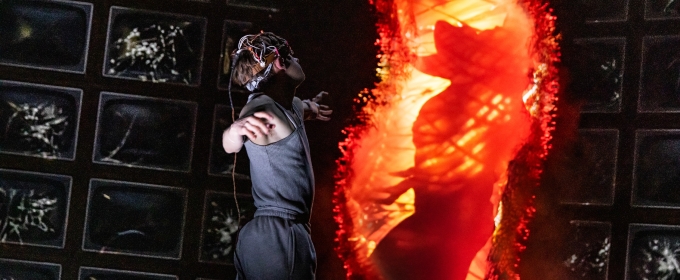 STRANGER THINGS: THE FIRST SHADOW on Broadway
Watch the trailer for the forthcoming Netflix documentary here!
STRANGER THINGS: THE FIRST SHADOW on Broadway
Watch the trailer for the forthcoming Netflix documentary here!
 STRANGER THINGS: THE FIRST SHADOW Takes First Broadway Bows
Stranger Things: The First Shadow officially opens on Tuesday, April 22.
STRANGER THINGS: THE FIRST SHADOW Takes First Broadway Bows
Stranger Things: The First Shadow officially opens on Tuesday, April 22.
 THE OUTSIDERS on Broadway New Images
The current cast features Daryl Tofa as Two-Bit Mathews, Brody Grant as Ponyboy Curtis and more.
THE OUTSIDERS on Broadway New Images
The current cast features Daryl Tofa as Two-Bit Mathews, Brody Grant as Ponyboy Curtis and more.
 OTHELLO Brings Out Pres. Joe Biden, Jennifer Lopez and More on Opening Night!
Directed by Tony Award winner Kenny Leon, Othello is playing a strictly limited engagement through Sunday, June 8 only.
OTHELLO Brings Out Pres. Joe Biden, Jennifer Lopez and More on Opening Night!
Directed by Tony Award winner Kenny Leon, Othello is playing a strictly limited engagement through Sunday, June 8 only.
 GLENGARRY GLEN ROSS Cast on the Opening Night Red Carpet
The revival officially opened on March 31 at the Palace Theatre.
GLENGARRY GLEN ROSS Cast on the Opening Night Red Carpet
The revival officially opened on March 31 at the Palace Theatre.
 STRANGER THINGS: THE FIRST SHADOW on Broadway
Watch the trailer for the forthcoming Netflix documentary here!
STRANGER THINGS: THE FIRST SHADOW on Broadway
Watch the trailer for the forthcoming Netflix documentary here!
 SIX Welcomes New Cast and Releases New Block of Tickets
Tickets are now available through November 23, 2025.
SIX Welcomes New Cast and Releases New Block of Tickets
Tickets are now available through November 23, 2025.
 THE OUTSIDERS on Broadway New Images
The current cast features Daryl Tofa as Two-Bit Mathews, Brody Grant as Ponyboy Curtis and more.
THE OUTSIDERS on Broadway New Images
The current cast features Daryl Tofa as Two-Bit Mathews, Brody Grant as Ponyboy Curtis and more.
 OTHELLO Brings Out Pres. Joe Biden, Jennifer Lopez and More on Opening Night!
Directed by Tony Award winner Kenny Leon, Othello is playing a strictly limited engagement through Sunday, June 8 only.
OTHELLO Brings Out Pres. Joe Biden, Jennifer Lopez and More on Opening Night!
Directed by Tony Award winner Kenny Leon, Othello is playing a strictly limited engagement through Sunday, June 8 only.
 GLENGARRY GLEN ROSS Cast on the Opening Night Red Carpet
The revival officially opened on March 31 at the Palace Theatre.
GLENGARRY GLEN ROSS Cast on the Opening Night Red Carpet
The revival officially opened on March 31 at the Palace Theatre.
 STRANGER THINGS: THE FIRST SHADOW on Broadway
Watch the trailer for the forthcoming Netflix documentary here!
STRANGER THINGS: THE FIRST SHADOW on Broadway
Watch the trailer for the forthcoming Netflix documentary here!
 SIX Welcomes New Cast and Releases New Block of Tickets
Tickets are now available through November 23, 2025.
SIX Welcomes New Cast and Releases New Block of Tickets
Tickets are now available through November 23, 2025.
 THE PICTURE OF DORIAN GRAY Opening Night Bows
Emmy and Olivier Award winner Sarah Snook leads the new adaptation, which is written and directed by Kip Williams.
THE PICTURE OF DORIAN GRAY Opening Night Bows
Emmy and Olivier Award winner Sarah Snook leads the new adaptation, which is written and directed by Kip Williams.
 OTHELLO Brings Out Pres. Joe Biden, Jennifer Lopez and More on Opening Night!
Directed by Tony Award winner Kenny Leon, Othello is playing a strictly limited engagement through Sunday, June 8 only.
OTHELLO Brings Out Pres. Joe Biden, Jennifer Lopez and More on Opening Night!
Directed by Tony Award winner Kenny Leon, Othello is playing a strictly limited engagement through Sunday, June 8 only.
 GLENGARRY GLEN ROSS Cast on the Opening Night Red Carpet
The revival officially opened on March 31 at the Palace Theatre.
GLENGARRY GLEN ROSS Cast on the Opening Night Red Carpet
The revival officially opened on March 31 at the Palace Theatre.
 STRANGER THINGS: THE FIRST SHADOW on Broadway
Watch the trailer for the forthcoming Netflix documentary here!
STRANGER THINGS: THE FIRST SHADOW on Broadway
Watch the trailer for the forthcoming Netflix documentary here!
 SIX Welcomes New Cast and Releases New Block of Tickets
Tickets are now available through November 23, 2025.
SIX Welcomes New Cast and Releases New Block of Tickets
Tickets are now available through November 23, 2025.
 THE PICTURE OF DORIAN GRAY Opening Night Bows
Emmy and Olivier Award winner Sarah Snook leads the new adaptation, which is written and directed by Kip Williams.
THE PICTURE OF DORIAN GRAY Opening Night Bows
Emmy and Olivier Award winner Sarah Snook leads the new adaptation, which is written and directed by Kip Williams.
 GLENGARRY GLEN ROSS Cast Takes Opening Night Bows
Performances are now underway at the Palace Theatre.
GLENGARRY GLEN ROSS Cast Takes Opening Night Bows
Performances are now underway at the Palace Theatre.
 GLENGARRY GLEN ROSS Cast on the Opening Night Red Carpet
The revival officially opened on March 31 at the Palace Theatre.
GLENGARRY GLEN ROSS Cast on the Opening Night Red Carpet
The revival officially opened on March 31 at the Palace Theatre.
 STRANGER THINGS: THE FIRST SHADOW on Broadway
Watch the trailer for the forthcoming Netflix documentary here!
STRANGER THINGS: THE FIRST SHADOW on Broadway
Watch the trailer for the forthcoming Netflix documentary here!
 SIX Welcomes New Cast and Releases New Block of Tickets
Tickets are now available through November 23, 2025.
SIX Welcomes New Cast and Releases New Block of Tickets
Tickets are now available through November 23, 2025.
 THE PICTURE OF DORIAN GRAY Opening Night Bows
Emmy and Olivier Award winner Sarah Snook leads the new adaptation, which is written and directed by Kip Williams.
THE PICTURE OF DORIAN GRAY Opening Night Bows
Emmy and Olivier Award winner Sarah Snook leads the new adaptation, which is written and directed by Kip Williams.
 GLENGARRY GLEN ROSS Cast Takes Opening Night Bows
Performances are now underway at the Palace Theatre.
GLENGARRY GLEN ROSS Cast Takes Opening Night Bows
Performances are now underway at the Palace Theatre.
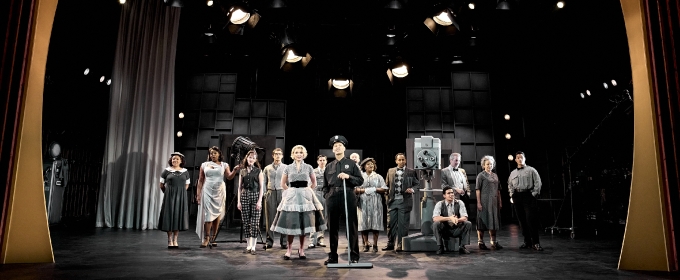 First Look at John Doyle's ALFRED HITCHCOCK PRESENTS Musical
Performances will run from 22 March to 12 April 2025.
First Look at John Doyle's ALFRED HITCHCOCK PRESENTS Musical
Performances will run from 22 March to 12 April 2025.
 STRANGER THINGS: THE FIRST SHADOW on Broadway
Watch the trailer for the forthcoming Netflix documentary here!
STRANGER THINGS: THE FIRST SHADOW on Broadway
Watch the trailer for the forthcoming Netflix documentary here!
 SIX Welcomes New Cast and Releases New Block of Tickets
Tickets are now available through November 23, 2025.
SIX Welcomes New Cast and Releases New Block of Tickets
Tickets are now available through November 23, 2025.
 THE PICTURE OF DORIAN GRAY Opening Night Bows
Emmy and Olivier Award winner Sarah Snook leads the new adaptation, which is written and directed by Kip Williams.
THE PICTURE OF DORIAN GRAY Opening Night Bows
Emmy and Olivier Award winner Sarah Snook leads the new adaptation, which is written and directed by Kip Williams.
 GLENGARRY GLEN ROSS Cast Takes Opening Night Bows
Performances are now underway at the Palace Theatre.
GLENGARRY GLEN ROSS Cast Takes Opening Night Bows
Performances are now underway at the Palace Theatre.
 First Look at John Doyle's ALFRED HITCHCOCK PRESENTS Musical
Performances will run from 22 March to 12 April 2025.
First Look at John Doyle's ALFRED HITCHCOCK PRESENTS Musical
Performances will run from 22 March to 12 April 2025.
 THE PICTURE OF DORIAN GRAY Opening Night Pink Carpet
Performances are now underway at the Music Box Theatre.
THE PICTURE OF DORIAN GRAY Opening Night Pink Carpet
Performances are now underway at the Music Box Theatre.
 SIX Welcomes New Cast and Releases New Block of Tickets
Tickets are now available through November 23, 2025.
SIX Welcomes New Cast and Releases New Block of Tickets
Tickets are now available through November 23, 2025.
 THE PICTURE OF DORIAN GRAY Opening Night Bows
Emmy and Olivier Award winner Sarah Snook leads the new adaptation, which is written and directed by Kip Williams.
THE PICTURE OF DORIAN GRAY Opening Night Bows
Emmy and Olivier Award winner Sarah Snook leads the new adaptation, which is written and directed by Kip Williams.
 GLENGARRY GLEN ROSS Cast Takes Opening Night Bows
Performances are now underway at the Palace Theatre.
GLENGARRY GLEN ROSS Cast Takes Opening Night Bows
Performances are now underway at the Palace Theatre.
 First Look at John Doyle's ALFRED HITCHCOCK PRESENTS Musical
Performances will run from 22 March to 12 April 2025.
First Look at John Doyle's ALFRED HITCHCOCK PRESENTS Musical
Performances will run from 22 March to 12 April 2025.
 THE PICTURE OF DORIAN GRAY Opening Night Pink Carpet
Performances are now underway at the Music Box Theatre.
THE PICTURE OF DORIAN GRAY Opening Night Pink Carpet
Performances are now underway at the Music Box Theatre.
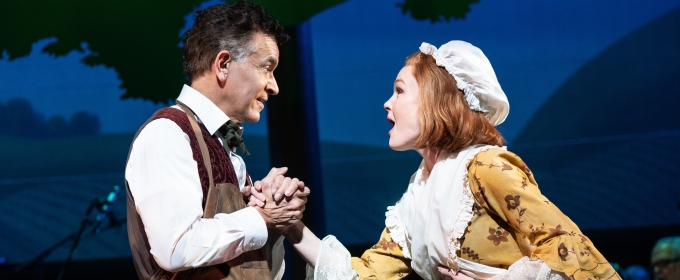 Encores! LOVE LIFE, Starring Brian Stokes Mitchell and Kate Baldwin
Love Life will run through March 30 at New York City Center.
Encores! LOVE LIFE, Starring Brian Stokes Mitchell and Kate Baldwin
Love Life will run through March 30 at New York City Center.
 THE PICTURE OF DORIAN GRAY Opening Night Bows
Emmy and Olivier Award winner Sarah Snook leads the new adaptation, which is written and directed by Kip Williams.
THE PICTURE OF DORIAN GRAY Opening Night Bows
Emmy and Olivier Award winner Sarah Snook leads the new adaptation, which is written and directed by Kip Williams.
 GLENGARRY GLEN ROSS Cast Takes Opening Night Bows
Performances are now underway at the Palace Theatre.
GLENGARRY GLEN ROSS Cast Takes Opening Night Bows
Performances are now underway at the Palace Theatre.
 First Look at John Doyle's ALFRED HITCHCOCK PRESENTS Musical
Performances will run from 22 March to 12 April 2025.
First Look at John Doyle's ALFRED HITCHCOCK PRESENTS Musical
Performances will run from 22 March to 12 April 2025.
 THE PICTURE OF DORIAN GRAY Opening Night Pink Carpet
Performances are now underway at the Music Box Theatre.
THE PICTURE OF DORIAN GRAY Opening Night Pink Carpet
Performances are now underway at the Music Box Theatre.
 Encores! LOVE LIFE, Starring Brian Stokes Mitchell and Kate Baldwin
Love Life will run through March 30 at New York City Center.
Encores! LOVE LIFE, Starring Brian Stokes Mitchell and Kate Baldwin
Love Life will run through March 30 at New York City Center.
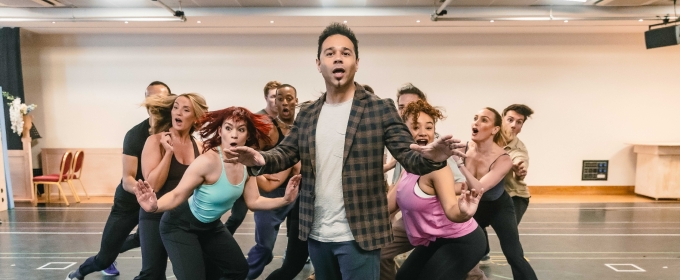 THE GREAT GATSBY Rehearses for London Debut
The West End production features Jamie Muscato, Frances Mayli McCann, Corbin Bleu and more.
THE GREAT GATSBY Rehearses for London Debut
The West End production features Jamie Muscato, Frances Mayli McCann, Corbin Bleu and more.
 GLENGARRY GLEN ROSS Cast Takes Opening Night Bows
Performances are now underway at the Palace Theatre.
GLENGARRY GLEN ROSS Cast Takes Opening Night Bows
Performances are now underway at the Palace Theatre.
 First Look at John Doyle's ALFRED HITCHCOCK PRESENTS Musical
Performances will run from 22 March to 12 April 2025.
First Look at John Doyle's ALFRED HITCHCOCK PRESENTS Musical
Performances will run from 22 March to 12 April 2025.
 THE PICTURE OF DORIAN GRAY Opening Night Pink Carpet
Performances are now underway at the Music Box Theatre.
THE PICTURE OF DORIAN GRAY Opening Night Pink Carpet
Performances are now underway at the Music Box Theatre.
 Encores! LOVE LIFE, Starring Brian Stokes Mitchell and Kate Baldwin
Love Life will run through March 30 at New York City Center.
Encores! LOVE LIFE, Starring Brian Stokes Mitchell and Kate Baldwin
Love Life will run through March 30 at New York City Center.
 THE GREAT GATSBY Rehearses for London Debut
The West End production features Jamie Muscato, Frances Mayli McCann, Corbin Bleu and more.
THE GREAT GATSBY Rehearses for London Debut
The West End production features Jamie Muscato, Frances Mayli McCann, Corbin Bleu and more.
 Denzel Washington and Jake Gyllenhaal at OTHELLO Curtain Call
Joining Washington and Gyllenhaal are Molly Osborne as ‘Desdemona’, Tony Award winner Andrew Burnap as ‘Cassio’, and more.
Denzel Washington and Jake Gyllenhaal at OTHELLO Curtain Call
Joining Washington and Gyllenhaal are Molly Osborne as ‘Desdemona’, Tony Award winner Andrew Burnap as ‘Cassio’, and more.
 First Look at John Doyle's ALFRED HITCHCOCK PRESENTS Musical
Performances will run from 22 March to 12 April 2025.
First Look at John Doyle's ALFRED HITCHCOCK PRESENTS Musical
Performances will run from 22 March to 12 April 2025.
 THE PICTURE OF DORIAN GRAY Opening Night Pink Carpet
Performances are now underway at the Music Box Theatre.
THE PICTURE OF DORIAN GRAY Opening Night Pink Carpet
Performances are now underway at the Music Box Theatre.
 Encores! LOVE LIFE, Starring Brian Stokes Mitchell and Kate Baldwin
Love Life will run through March 30 at New York City Center.
Encores! LOVE LIFE, Starring Brian Stokes Mitchell and Kate Baldwin
Love Life will run through March 30 at New York City Center.
 THE GREAT GATSBY Rehearses for London Debut
The West End production features Jamie Muscato, Frances Mayli McCann, Corbin Bleu and more.
THE GREAT GATSBY Rehearses for London Debut
The West End production features Jamie Muscato, Frances Mayli McCann, Corbin Bleu and more.
 Denzel Washington and Jake Gyllenhaal at OTHELLO Curtain Call
Joining Washington and Gyllenhaal are Molly Osborne as ‘Desdemona’, Tony Award winner Andrew Burnap as ‘Cassio’, and more.
Denzel Washington and Jake Gyllenhaal at OTHELLO Curtain Call
Joining Washington and Gyllenhaal are Molly Osborne as ‘Desdemona’, Tony Award winner Andrew Burnap as ‘Cassio’, and more.
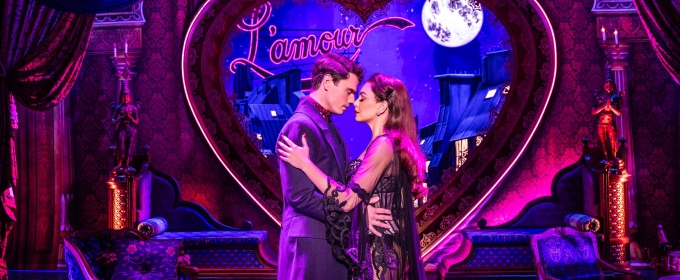 MOULIN ROUGE! On Tour Featuring Jay Armstrong Johnson, Robert Petkoff, and More
The show returns to Chicago, where the tour launched in March of 2022 with performances, beginning tonight through April 20 at the Cadillac Palace Theatre.
MOULIN ROUGE! On Tour Featuring Jay Armstrong Johnson, Robert Petkoff, and More
The show returns to Chicago, where the tour launched in March of 2022 with performances, beginning tonight through April 20 at the Cadillac Palace Theatre.
 THE PICTURE OF DORIAN GRAY Opening Night Pink Carpet
Performances are now underway at the Music Box Theatre.
THE PICTURE OF DORIAN GRAY Opening Night Pink Carpet
Performances are now underway at the Music Box Theatre.
 Encores! LOVE LIFE, Starring Brian Stokes Mitchell and Kate Baldwin
Love Life will run through March 30 at New York City Center.
Encores! LOVE LIFE, Starring Brian Stokes Mitchell and Kate Baldwin
Love Life will run through March 30 at New York City Center.
 THE GREAT GATSBY Rehearses for London Debut
The West End production features Jamie Muscato, Frances Mayli McCann, Corbin Bleu and more.
THE GREAT GATSBY Rehearses for London Debut
The West End production features Jamie Muscato, Frances Mayli McCann, Corbin Bleu and more.
 Denzel Washington and Jake Gyllenhaal at OTHELLO Curtain Call
Joining Washington and Gyllenhaal are Molly Osborne as ‘Desdemona’, Tony Award winner Andrew Burnap as ‘Cassio’, and more.
Denzel Washington and Jake Gyllenhaal at OTHELLO Curtain Call
Joining Washington and Gyllenhaal are Molly Osborne as ‘Desdemona’, Tony Award winner Andrew Burnap as ‘Cassio’, and more.
 MOULIN ROUGE! On Tour Featuring Jay Armstrong Johnson, Robert Petkoff, and More
The show returns to Chicago, where the tour launched in March of 2022 with performances, beginning tonight through April 20 at the Cadillac Palace Theatre.
MOULIN ROUGE! On Tour Featuring Jay Armstrong Johnson, Robert Petkoff, and More
The show returns to Chicago, where the tour launched in March of 2022 with performances, beginning tonight through April 20 at the Cadillac Palace Theatre.
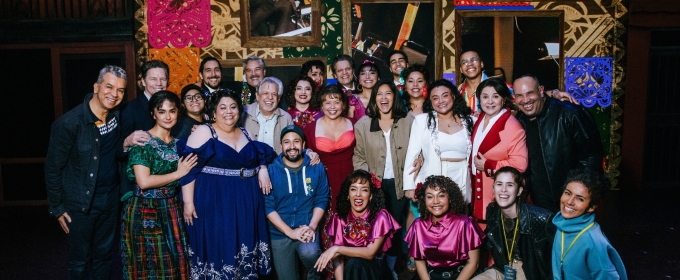 Lin-Manuel Miranda and Gina Rodriguez Visit REAL WOMEN HAVE CURVES
The stars, alongside Luis Miranda and Lyrik Cruz, paid a visit and met with the cast backstage after the show.
Lin-Manuel Miranda and Gina Rodriguez Visit REAL WOMEN HAVE CURVES
The stars, alongside Luis Miranda and Lyrik Cruz, paid a visit and met with the cast backstage after the show.
 Encores! LOVE LIFE, Starring Brian Stokes Mitchell and Kate Baldwin
Love Life will run through March 30 at New York City Center.
Encores! LOVE LIFE, Starring Brian Stokes Mitchell and Kate Baldwin
Love Life will run through March 30 at New York City Center.
 THE GREAT GATSBY Rehearses for London Debut
The West End production features Jamie Muscato, Frances Mayli McCann, Corbin Bleu and more.
THE GREAT GATSBY Rehearses for London Debut
The West End production features Jamie Muscato, Frances Mayli McCann, Corbin Bleu and more.
 Denzel Washington and Jake Gyllenhaal at OTHELLO Curtain Call
Joining Washington and Gyllenhaal are Molly Osborne as ‘Desdemona’, Tony Award winner Andrew Burnap as ‘Cassio’, and more.
Denzel Washington and Jake Gyllenhaal at OTHELLO Curtain Call
Joining Washington and Gyllenhaal are Molly Osborne as ‘Desdemona’, Tony Award winner Andrew Burnap as ‘Cassio’, and more.
 MOULIN ROUGE! On Tour Featuring Jay Armstrong Johnson, Robert Petkoff, and More
The show returns to Chicago, where the tour launched in March of 2022 with performances, beginning tonight through April 20 at the Cadillac Palace Theatre.
MOULIN ROUGE! On Tour Featuring Jay Armstrong Johnson, Robert Petkoff, and More
The show returns to Chicago, where the tour launched in March of 2022 with performances, beginning tonight through April 20 at the Cadillac Palace Theatre.
 Lin-Manuel Miranda and Gina Rodriguez Visit REAL WOMEN HAVE CURVES
The stars, alongside Luis Miranda and Lyrik Cruz, paid a visit and met with the cast backstage after the show.
Lin-Manuel Miranda and Gina Rodriguez Visit REAL WOMEN HAVE CURVES
The stars, alongside Luis Miranda and Lyrik Cruz, paid a visit and met with the cast backstage after the show.
 Hulu's MID-CENTURY MODERN Premieres In Los Angeles
The series premieres March 28, 2025 with all ten episodes on Hulu.
Hulu's MID-CENTURY MODERN Premieres In Los Angeles
The series premieres March 28, 2025 with all ten episodes on Hulu.
 THE GREAT GATSBY Rehearses for London Debut
The West End production features Jamie Muscato, Frances Mayli McCann, Corbin Bleu and more.
THE GREAT GATSBY Rehearses for London Debut
The West End production features Jamie Muscato, Frances Mayli McCann, Corbin Bleu and more.
 Denzel Washington and Jake Gyllenhaal at OTHELLO Curtain Call
Joining Washington and Gyllenhaal are Molly Osborne as ‘Desdemona’, Tony Award winner Andrew Burnap as ‘Cassio’, and more.
Denzel Washington and Jake Gyllenhaal at OTHELLO Curtain Call
Joining Washington and Gyllenhaal are Molly Osborne as ‘Desdemona’, Tony Award winner Andrew Burnap as ‘Cassio’, and more.
 MOULIN ROUGE! On Tour Featuring Jay Armstrong Johnson, Robert Petkoff, and More
The show returns to Chicago, where the tour launched in March of 2022 with performances, beginning tonight through April 20 at the Cadillac Palace Theatre.
MOULIN ROUGE! On Tour Featuring Jay Armstrong Johnson, Robert Petkoff, and More
The show returns to Chicago, where the tour launched in March of 2022 with performances, beginning tonight through April 20 at the Cadillac Palace Theatre.
 Lin-Manuel Miranda and Gina Rodriguez Visit REAL WOMEN HAVE CURVES
The stars, alongside Luis Miranda and Lyrik Cruz, paid a visit and met with the cast backstage after the show.
Lin-Manuel Miranda and Gina Rodriguez Visit REAL WOMEN HAVE CURVES
The stars, alongside Luis Miranda and Lyrik Cruz, paid a visit and met with the cast backstage after the show.
 Hulu's MID-CENTURY MODERN Premieres In Los Angeles
The series premieres March 28, 2025 with all ten episodes on Hulu.
Hulu's MID-CENTURY MODERN Premieres In Los Angeles
The series premieres March 28, 2025 with all ten episodes on Hulu.
 First Look At Orville Peck and Eva Noblezada In CABARET AT THE KIT KAT CLUB
Peck and Noblezada will star in the Tony Award-winning production for a limited 16-week engagement through Sunday, July 20.
First Look At Orville Peck and Eva Noblezada In CABARET AT THE KIT KAT CLUB
Peck and Noblezada will star in the Tony Award-winning production for a limited 16-week engagement through Sunday, July 20.
 Denzel Washington and Jake Gyllenhaal at OTHELLO Curtain Call
Joining Washington and Gyllenhaal are Molly Osborne as ‘Desdemona’, Tony Award winner Andrew Burnap as ‘Cassio’, and more.
Denzel Washington and Jake Gyllenhaal at OTHELLO Curtain Call
Joining Washington and Gyllenhaal are Molly Osborne as ‘Desdemona’, Tony Award winner Andrew Burnap as ‘Cassio’, and more.
 MOULIN ROUGE! On Tour Featuring Jay Armstrong Johnson, Robert Petkoff, and More
The show returns to Chicago, where the tour launched in March of 2022 with performances, beginning tonight through April 20 at the Cadillac Palace Theatre.
MOULIN ROUGE! On Tour Featuring Jay Armstrong Johnson, Robert Petkoff, and More
The show returns to Chicago, where the tour launched in March of 2022 with performances, beginning tonight through April 20 at the Cadillac Palace Theatre.
 Lin-Manuel Miranda and Gina Rodriguez Visit REAL WOMEN HAVE CURVES
The stars, alongside Luis Miranda and Lyrik Cruz, paid a visit and met with the cast backstage after the show.
Lin-Manuel Miranda and Gina Rodriguez Visit REAL WOMEN HAVE CURVES
The stars, alongside Luis Miranda and Lyrik Cruz, paid a visit and met with the cast backstage after the show.
 Hulu's MID-CENTURY MODERN Premieres In Los Angeles
The series premieres March 28, 2025 with all ten episodes on Hulu.
Hulu's MID-CENTURY MODERN Premieres In Los Angeles
The series premieres March 28, 2025 with all ten episodes on Hulu.
 First Look At Orville Peck and Eva Noblezada In CABARET AT THE KIT KAT CLUB
Peck and Noblezada will star in the Tony Award-winning production for a limited 16-week engagement through Sunday, July 20.
First Look At Orville Peck and Eva Noblezada In CABARET AT THE KIT KAT CLUB
Peck and Noblezada will star in the Tony Award-winning production for a limited 16-week engagement through Sunday, July 20.
 Exclusive: Inside THE PICTURE OF DORIAN GRAY Opening Night Party
The production opened on March 27 at the Music Box Theatre.
Exclusive: Inside THE PICTURE OF DORIAN GRAY Opening Night Party
The production opened on March 27 at the Music Box Theatre.
 MOULIN ROUGE! On Tour Featuring Jay Armstrong Johnson, Robert Petkoff, and More
The show returns to Chicago, where the tour launched in March of 2022 with performances, beginning tonight through April 20 at the Cadillac Palace Theatre.
MOULIN ROUGE! On Tour Featuring Jay Armstrong Johnson, Robert Petkoff, and More
The show returns to Chicago, where the tour launched in March of 2022 with performances, beginning tonight through April 20 at the Cadillac Palace Theatre.
 Lin-Manuel Miranda and Gina Rodriguez Visit REAL WOMEN HAVE CURVES
The stars, alongside Luis Miranda and Lyrik Cruz, paid a visit and met with the cast backstage after the show.
Lin-Manuel Miranda and Gina Rodriguez Visit REAL WOMEN HAVE CURVES
The stars, alongside Luis Miranda and Lyrik Cruz, paid a visit and met with the cast backstage after the show.
 Hulu's MID-CENTURY MODERN Premieres In Los Angeles
The series premieres March 28, 2025 with all ten episodes on Hulu.
Hulu's MID-CENTURY MODERN Premieres In Los Angeles
The series premieres March 28, 2025 with all ten episodes on Hulu.
 First Look At Orville Peck and Eva Noblezada In CABARET AT THE KIT KAT CLUB
Peck and Noblezada will star in the Tony Award-winning production for a limited 16-week engagement through Sunday, July 20.
First Look At Orville Peck and Eva Noblezada In CABARET AT THE KIT KAT CLUB
Peck and Noblezada will star in the Tony Award-winning production for a limited 16-week engagement through Sunday, July 20.
 Exclusive: Inside THE PICTURE OF DORIAN GRAY Opening Night Party
The production opened on March 27 at the Music Box Theatre.
Exclusive: Inside THE PICTURE OF DORIAN GRAY Opening Night Party
The production opened on March 27 at the Music Box Theatre.
 First Look at GOOD NIGHT, AND GOOD LUCK, Starring George Clooney
Good Night, and Good Luck will open at the Winter Garden Theatre on April 3.
First Look at GOOD NIGHT, AND GOOD LUCK, Starring George Clooney
Good Night, and Good Luck will open at the Winter Garden Theatre on April 3.
 Lin-Manuel Miranda and Gina Rodriguez Visit REAL WOMEN HAVE CURVES
The stars, alongside Luis Miranda and Lyrik Cruz, paid a visit and met with the cast backstage after the show.
Lin-Manuel Miranda and Gina Rodriguez Visit REAL WOMEN HAVE CURVES
The stars, alongside Luis Miranda and Lyrik Cruz, paid a visit and met with the cast backstage after the show.
 Hulu's MID-CENTURY MODERN Premieres In Los Angeles
The series premieres March 28, 2025 with all ten episodes on Hulu.
Hulu's MID-CENTURY MODERN Premieres In Los Angeles
The series premieres March 28, 2025 with all ten episodes on Hulu.
 First Look At Orville Peck and Eva Noblezada In CABARET AT THE KIT KAT CLUB
Peck and Noblezada will star in the Tony Award-winning production for a limited 16-week engagement through Sunday, July 20.
First Look At Orville Peck and Eva Noblezada In CABARET AT THE KIT KAT CLUB
Peck and Noblezada will star in the Tony Award-winning production for a limited 16-week engagement through Sunday, July 20.
 Exclusive: Inside THE PICTURE OF DORIAN GRAY Opening Night Party
The production opened on March 27 at the Music Box Theatre.
Exclusive: Inside THE PICTURE OF DORIAN GRAY Opening Night Party
The production opened on March 27 at the Music Box Theatre.
 First Look at GOOD NIGHT, AND GOOD LUCK, Starring George Clooney
Good Night, and Good Luck will open at the Winter Garden Theatre on April 3.
First Look at GOOD NIGHT, AND GOOD LUCK, Starring George Clooney
Good Night, and Good Luck will open at the Winter Garden Theatre on April 3.
 GOOD NIGHT, AND GOOD LUCK Opening Night Brings Out Jennifer Lopez, Rachel Zegler and More
Performances are now underway at the Winter Garden Theatre.
GOOD NIGHT, AND GOOD LUCK Opening Night Brings Out Jennifer Lopez, Rachel Zegler and More
Performances are now underway at the Winter Garden Theatre.
 Hulu's MID-CENTURY MODERN Premieres In Los Angeles
The series premieres March 28, 2025 with all ten episodes on Hulu.
Hulu's MID-CENTURY MODERN Premieres In Los Angeles
The series premieres March 28, 2025 with all ten episodes on Hulu.
 First Look At Orville Peck and Eva Noblezada In CABARET AT THE KIT KAT CLUB
Peck and Noblezada will star in the Tony Award-winning production for a limited 16-week engagement through Sunday, July 20.
First Look At Orville Peck and Eva Noblezada In CABARET AT THE KIT KAT CLUB
Peck and Noblezada will star in the Tony Award-winning production for a limited 16-week engagement through Sunday, July 20.
 Exclusive: Inside THE PICTURE OF DORIAN GRAY Opening Night Party
The production opened on March 27 at the Music Box Theatre.
Exclusive: Inside THE PICTURE OF DORIAN GRAY Opening Night Party
The production opened on March 27 at the Music Box Theatre.
 First Look at GOOD NIGHT, AND GOOD LUCK, Starring George Clooney
Good Night, and Good Luck will open at the Winter Garden Theatre on April 3.
First Look at GOOD NIGHT, AND GOOD LUCK, Starring George Clooney
Good Night, and Good Luck will open at the Winter Garden Theatre on April 3.
 GOOD NIGHT, AND GOOD LUCK Opening Night Brings Out Jennifer Lopez, Rachel Zegler and More
Performances are now underway at the Winter Garden Theatre.
GOOD NIGHT, AND GOOD LUCK Opening Night Brings Out Jennifer Lopez, Rachel Zegler and More
Performances are now underway at the Winter Garden Theatre.
 Boy George Returns to MOULIN ROUGE! on Broadway
Boy George will play a limited 10-week engagement through Sunday, May 25.
Boy George Returns to MOULIN ROUGE! on Broadway
Boy George will play a limited 10-week engagement through Sunday, May 25.
Industry
Get Broadway's #1 Newsletter

West End

Final Round Voting Open for 2nd Annual Ultimate Best Musical Broadway Bracket
Could Les Misérables take the win for the second consective year?
Could Les Misérables take the win for the second consective year?
New York City

Photos: ACCORDING TO HOWARD Opens at The York Theatre
The show runs through April 13, 2025.
The show runs through April 13, 2025.
United States

Opera Carolina Faces Leadership Changes and Lawsuit from Former Production Director
Opera Carolina is embroiled in a lawsuit with its former production director amid major leadership changes at the nonprofit opera company.
Opera Carolina is embroiled in a lawsuit with its former production director amid major leadership changes at the nonprofit opera company.
International
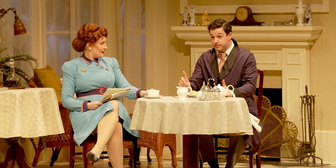
Video: Watch the Extended Trailer For BLITHE SPIRIT at at Theatre Calgary
The production is running now until April 13th at Theatre Calgary!
The production is running now until April 13th at Theatre Calgary!



